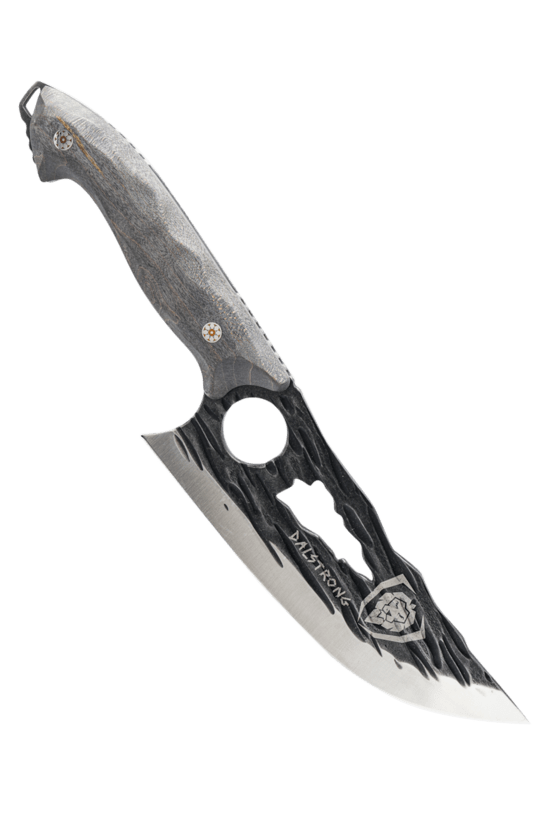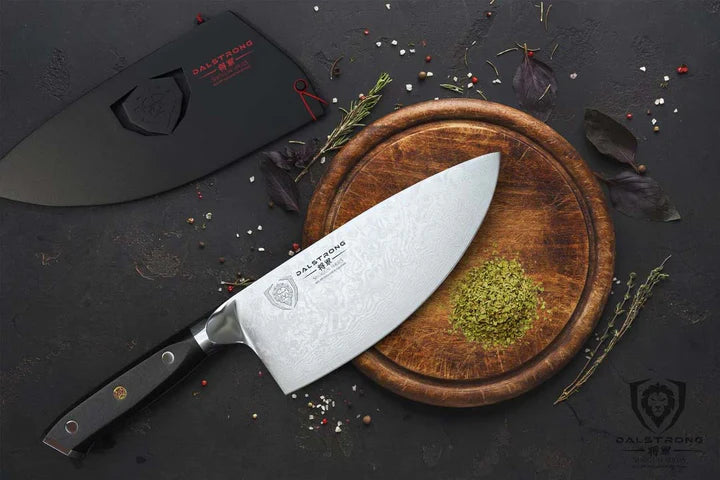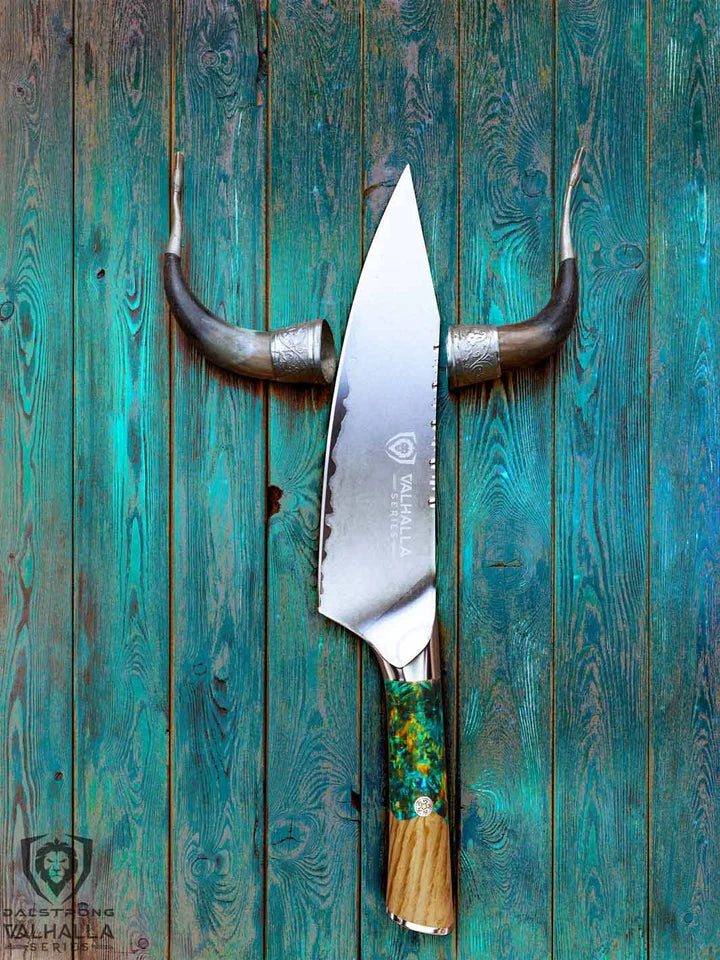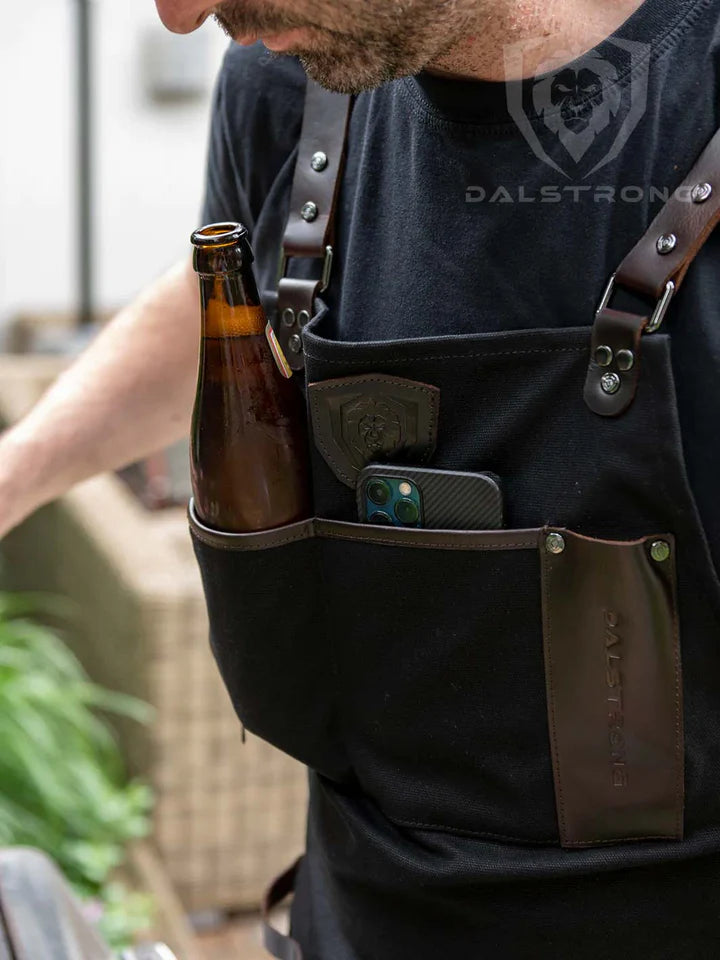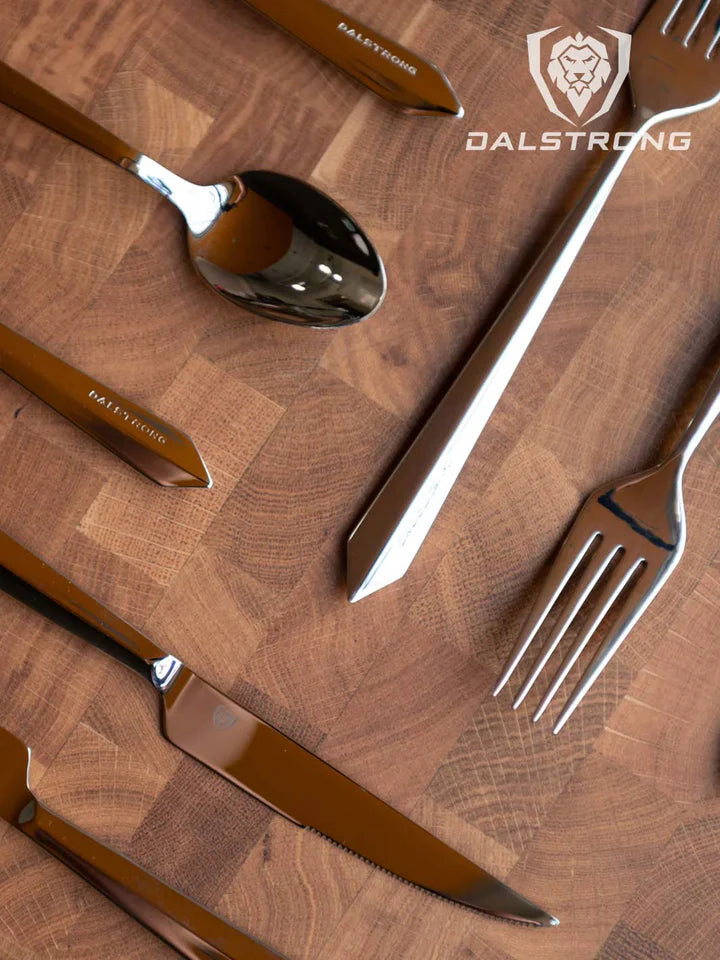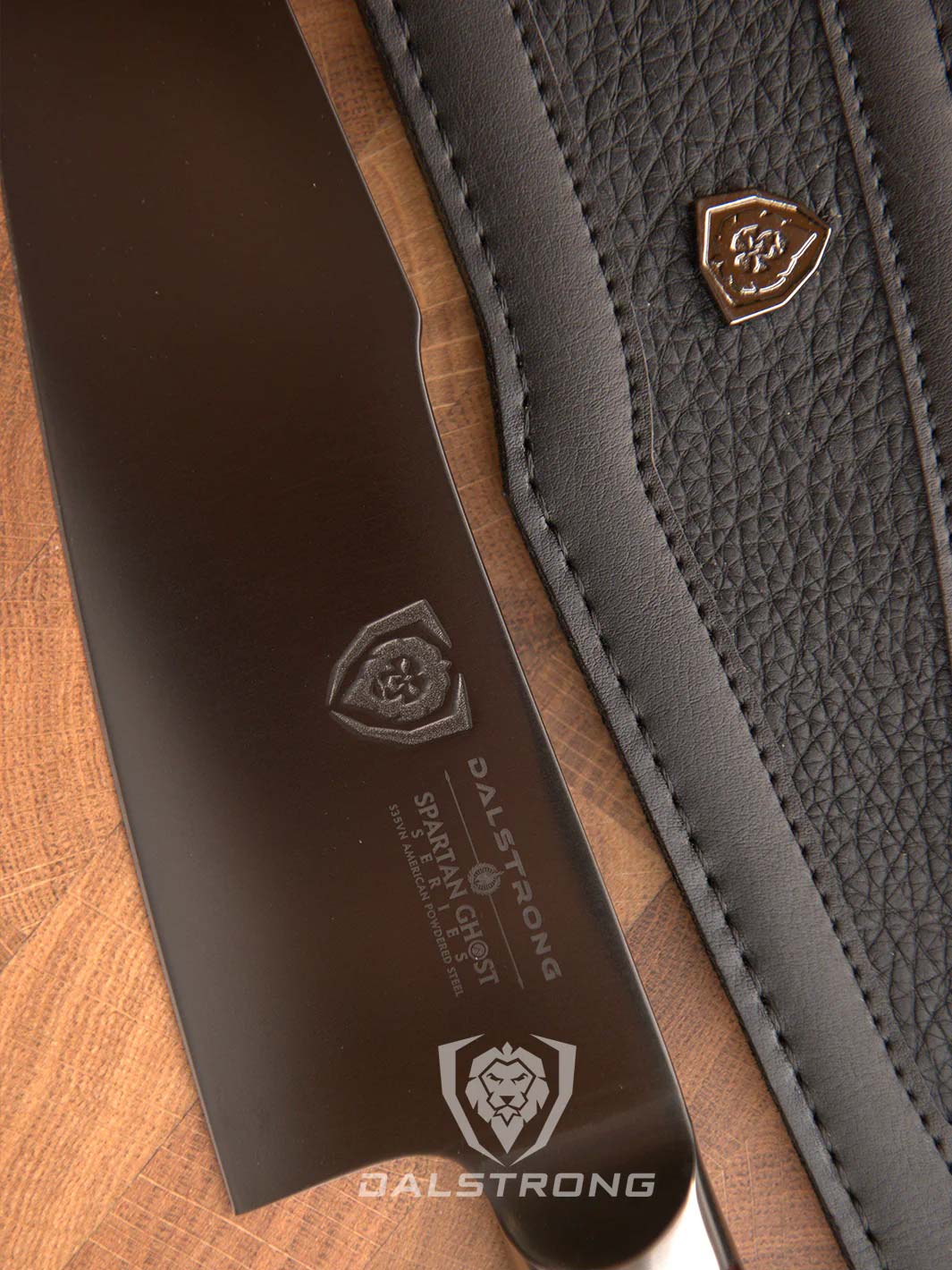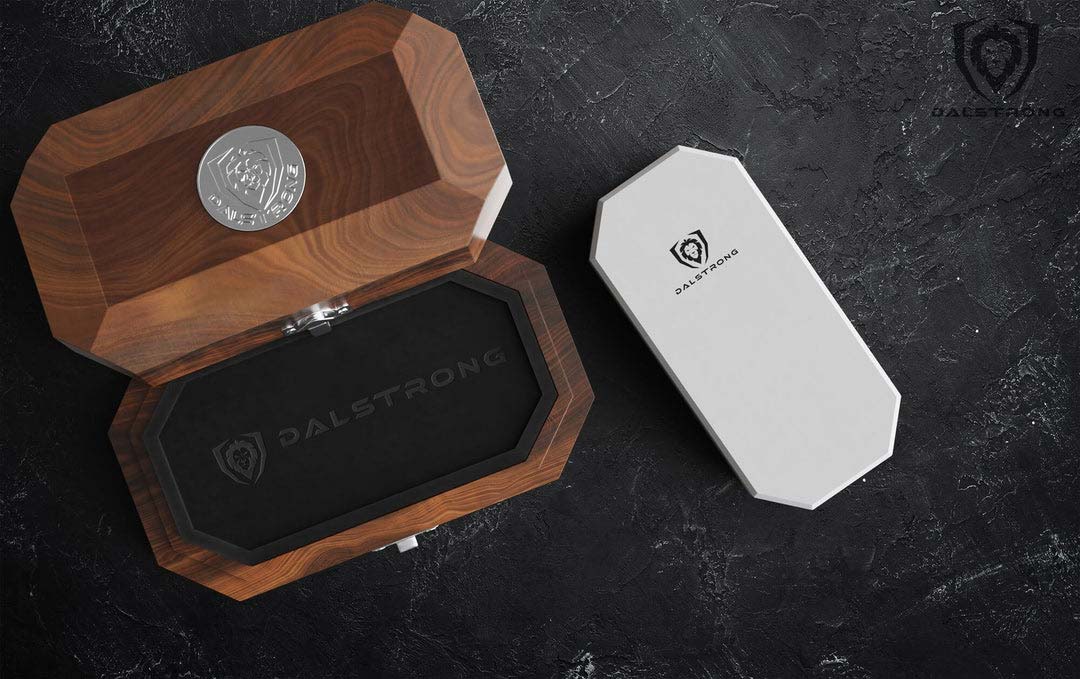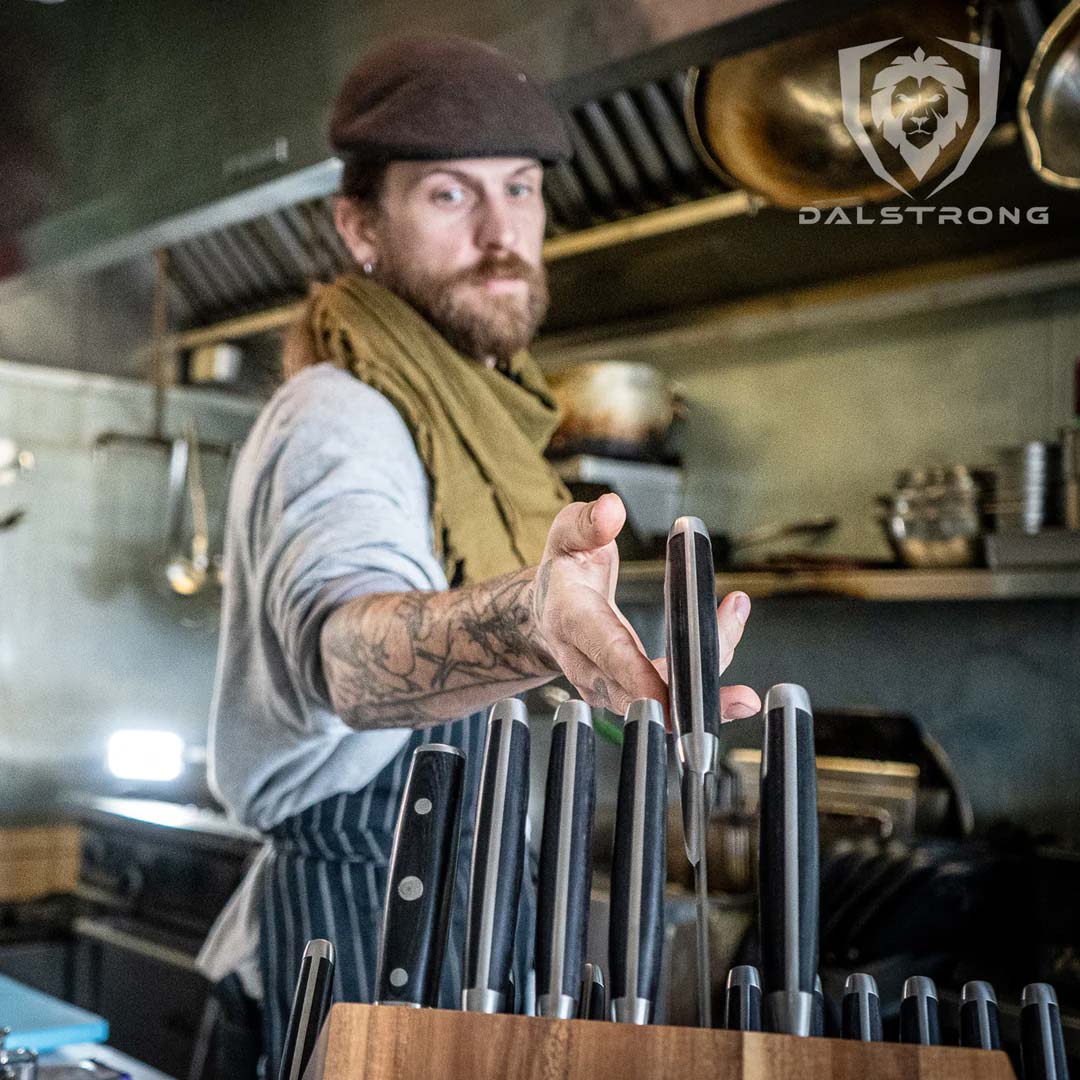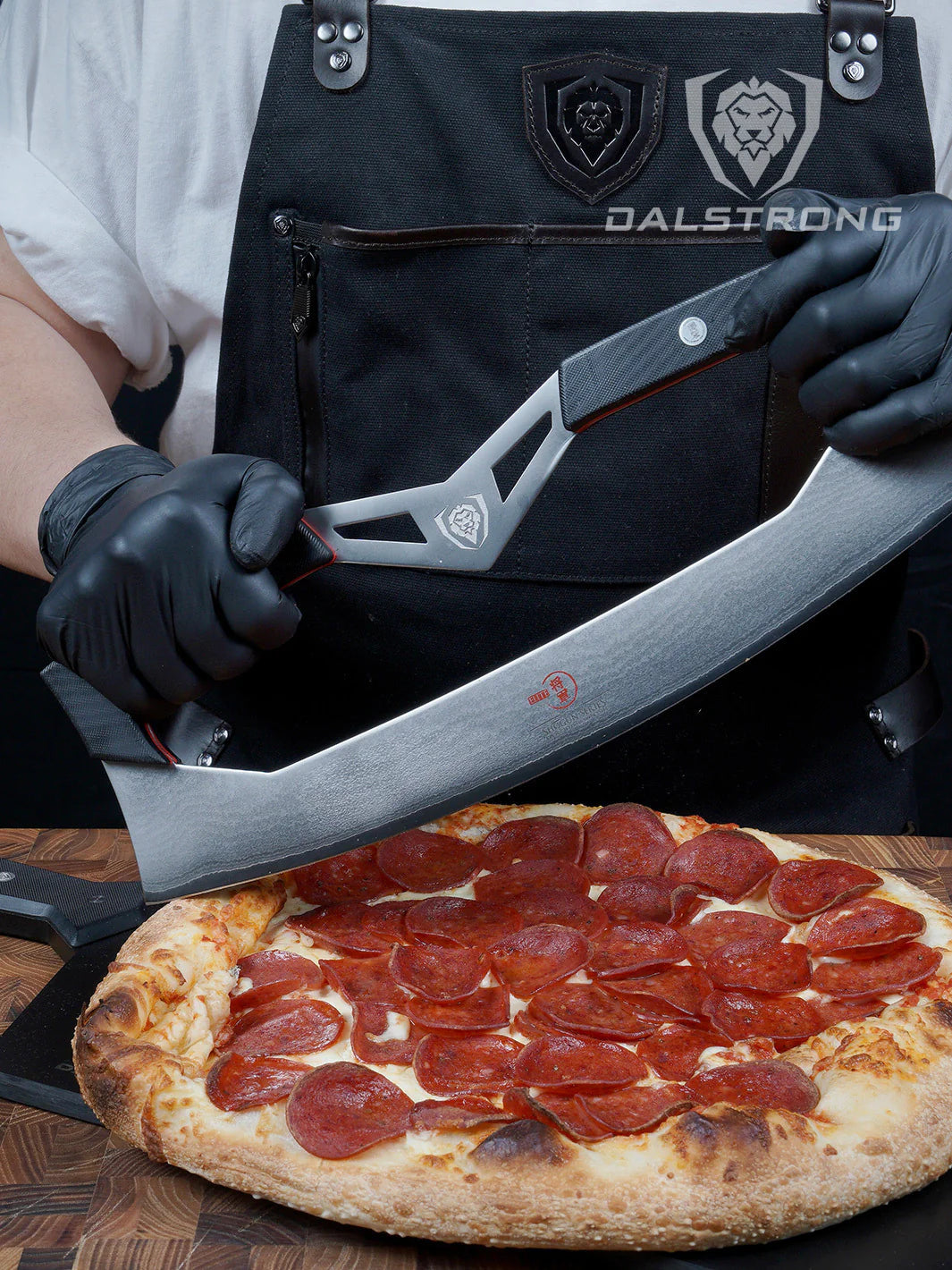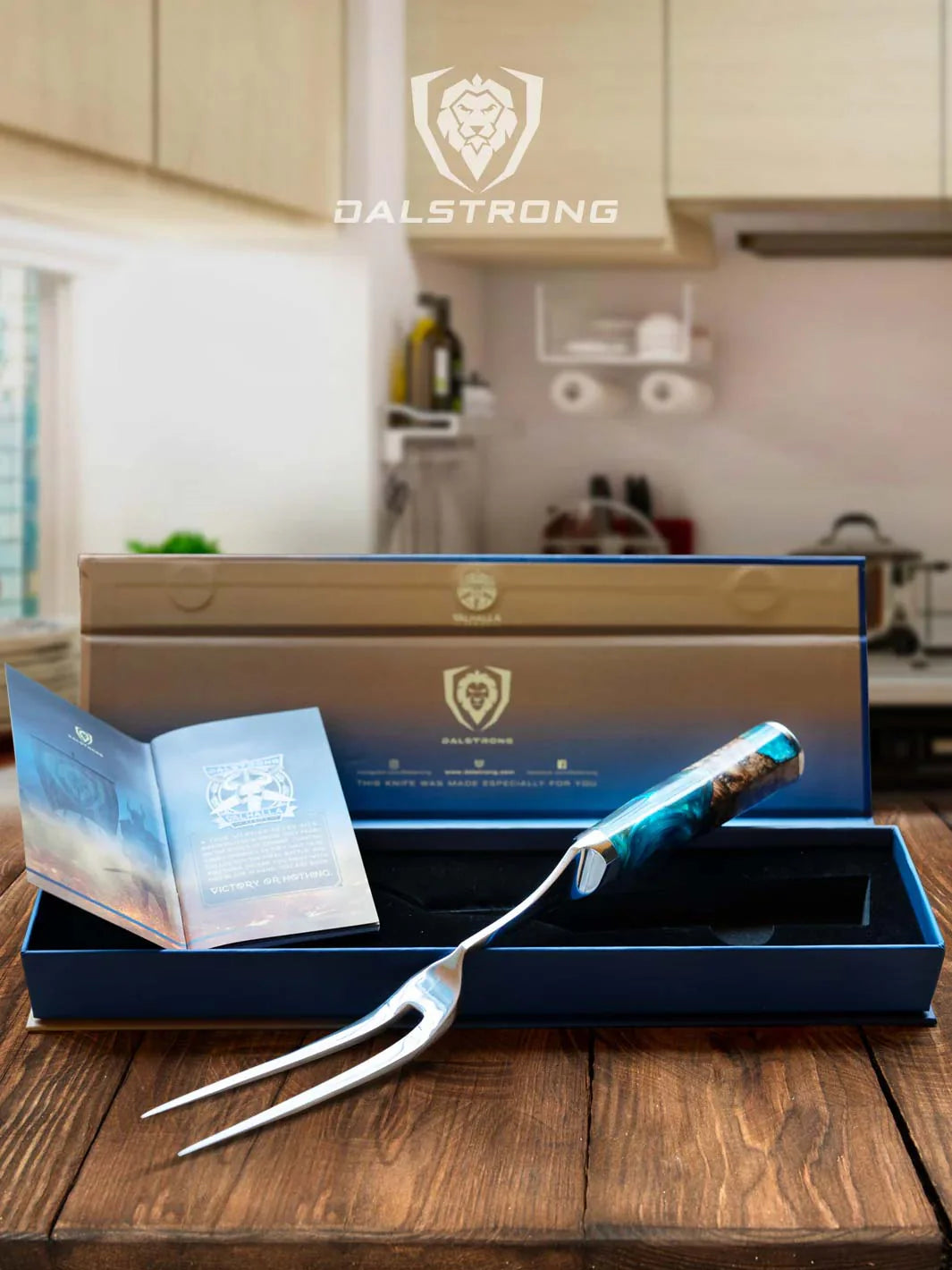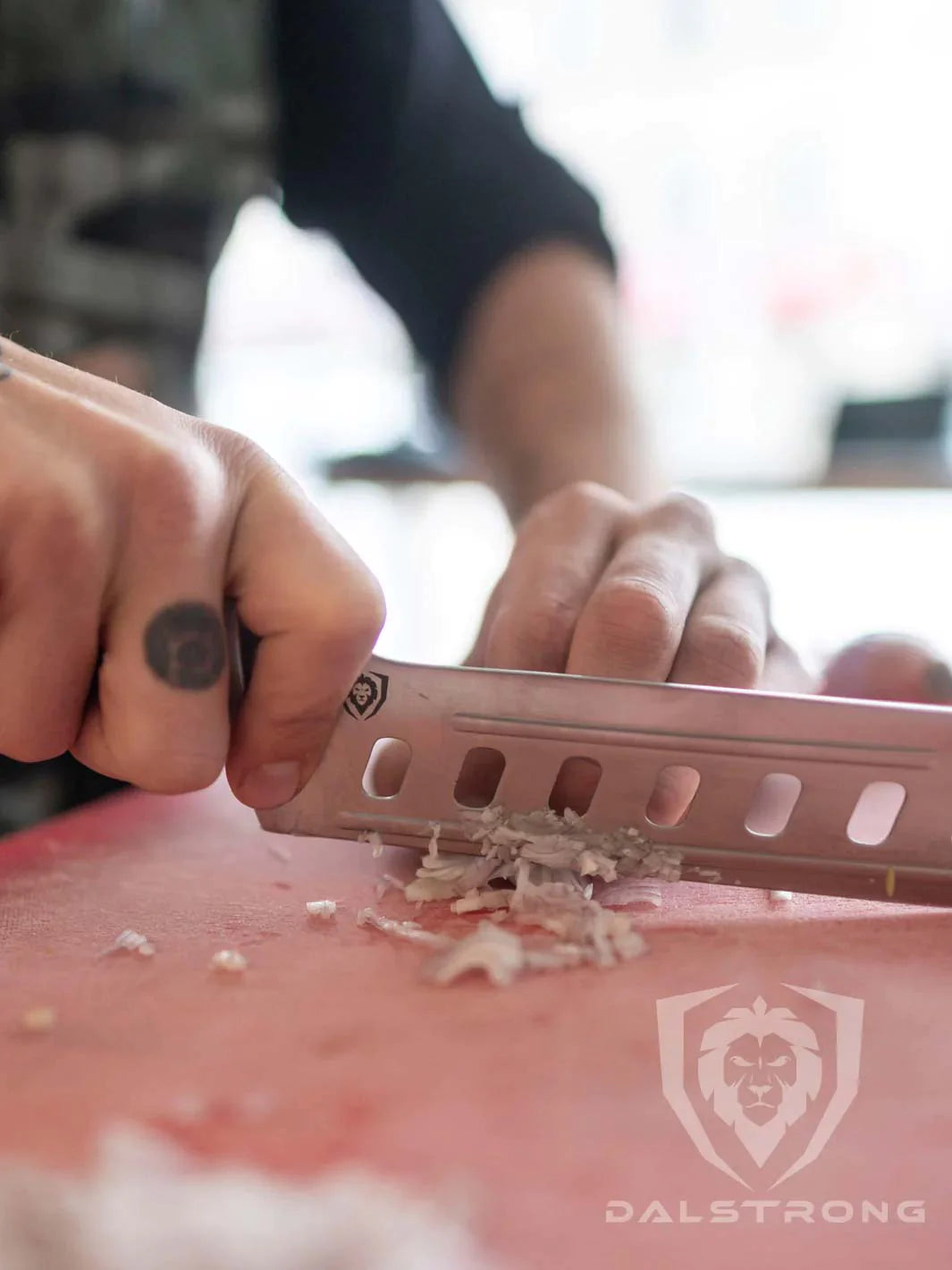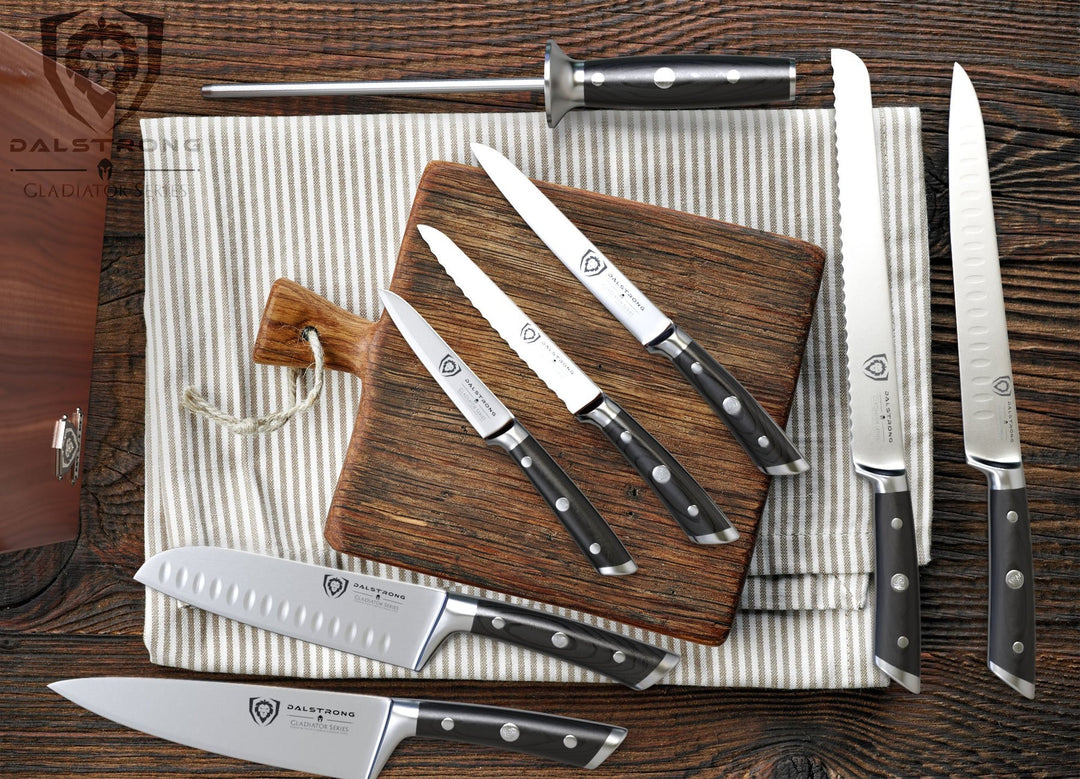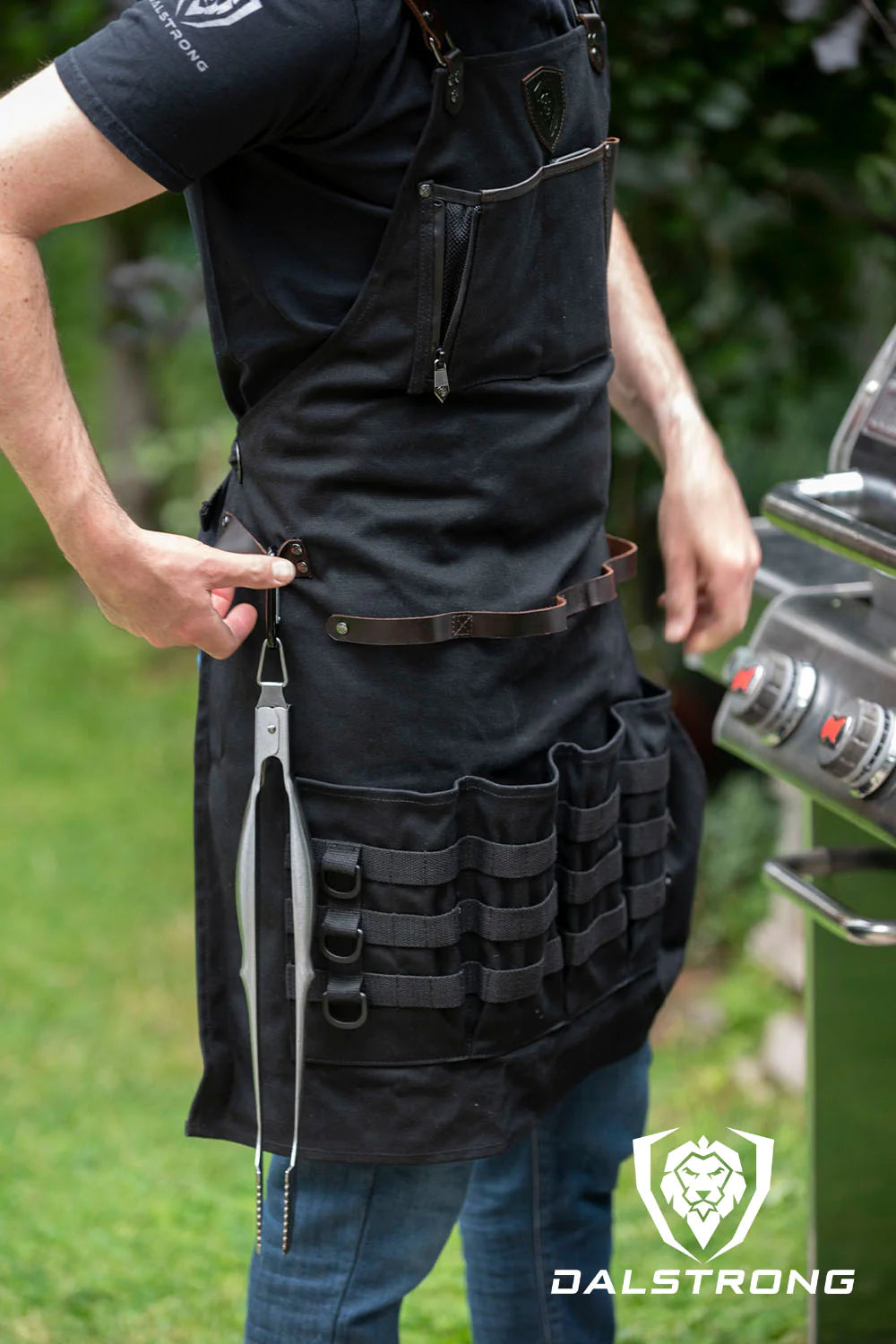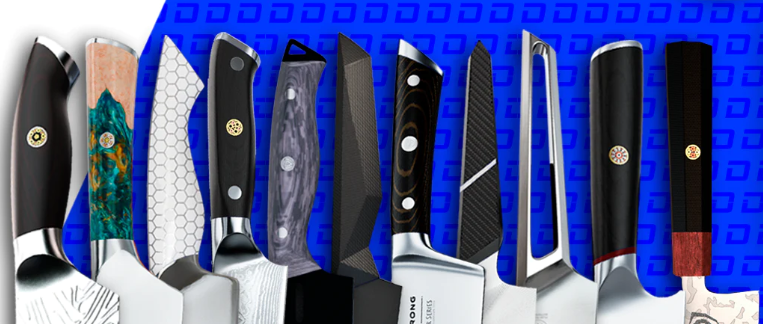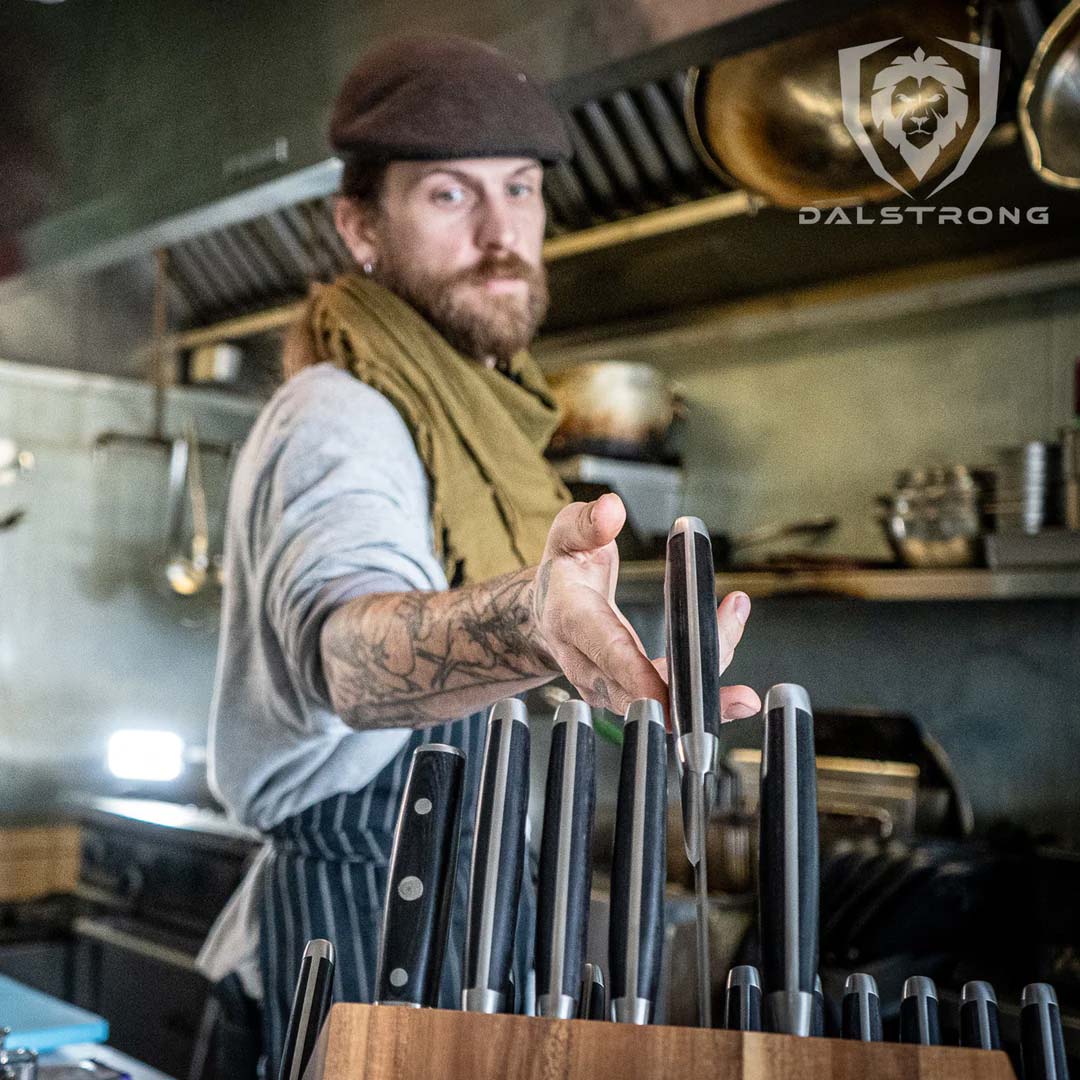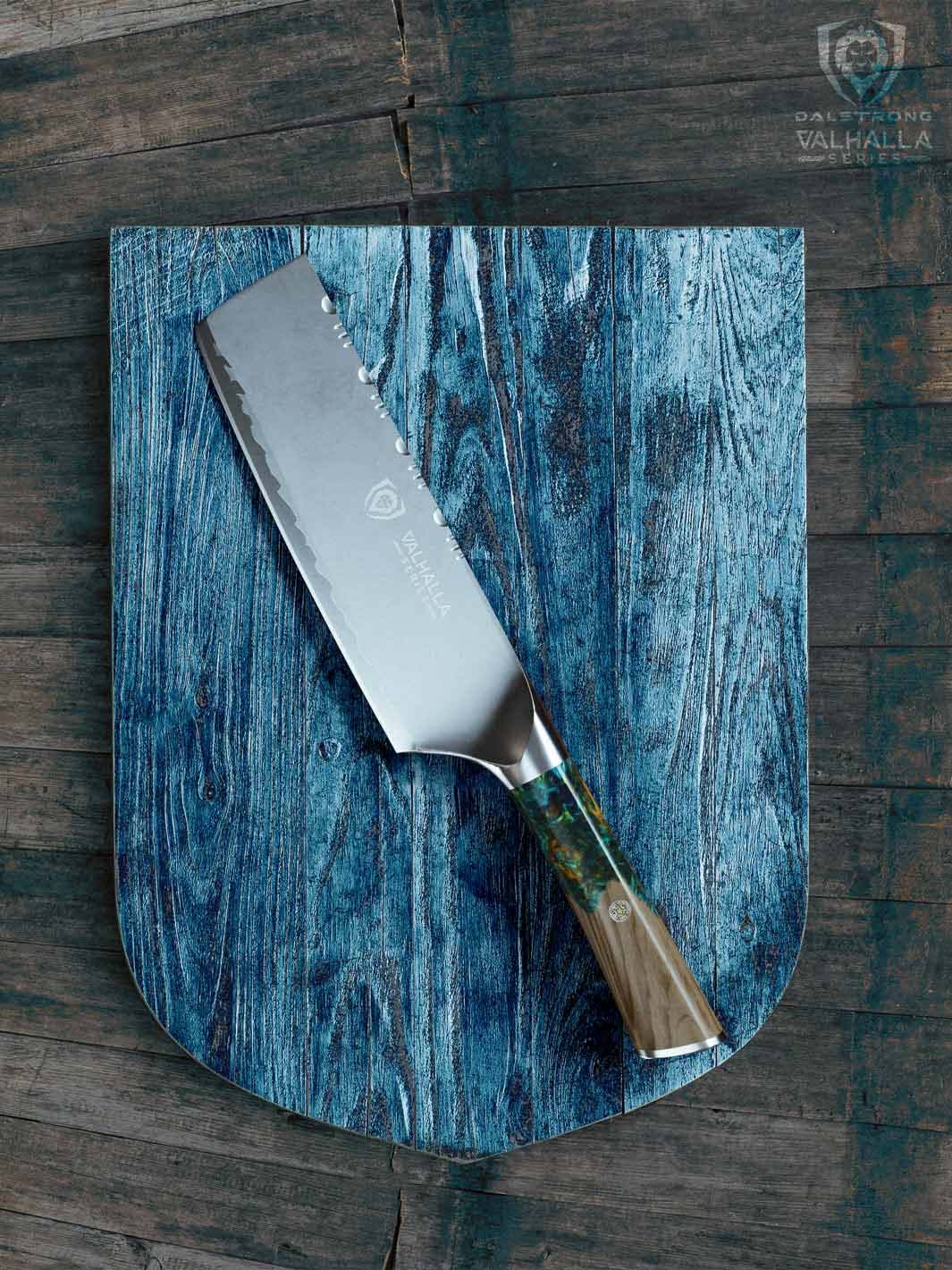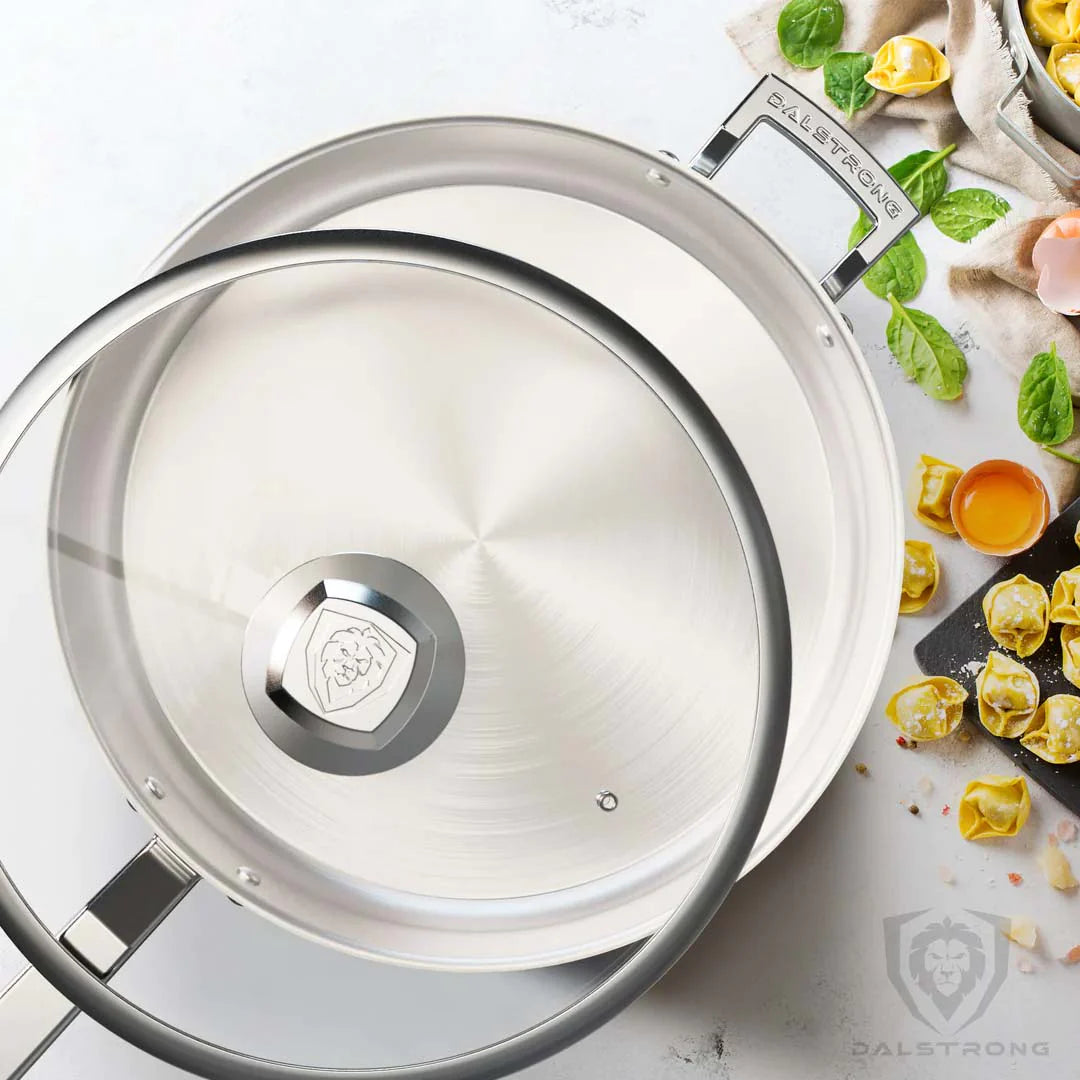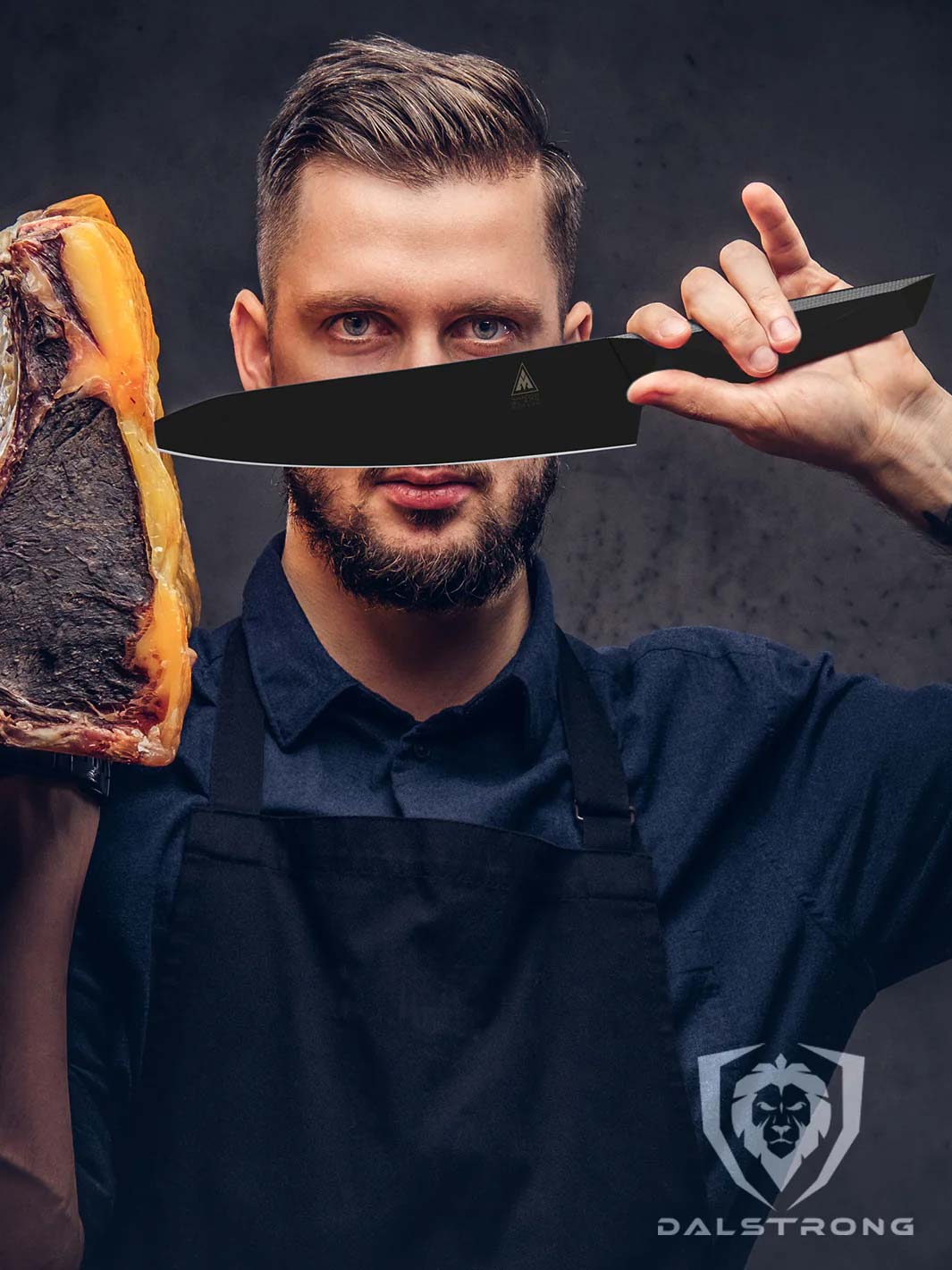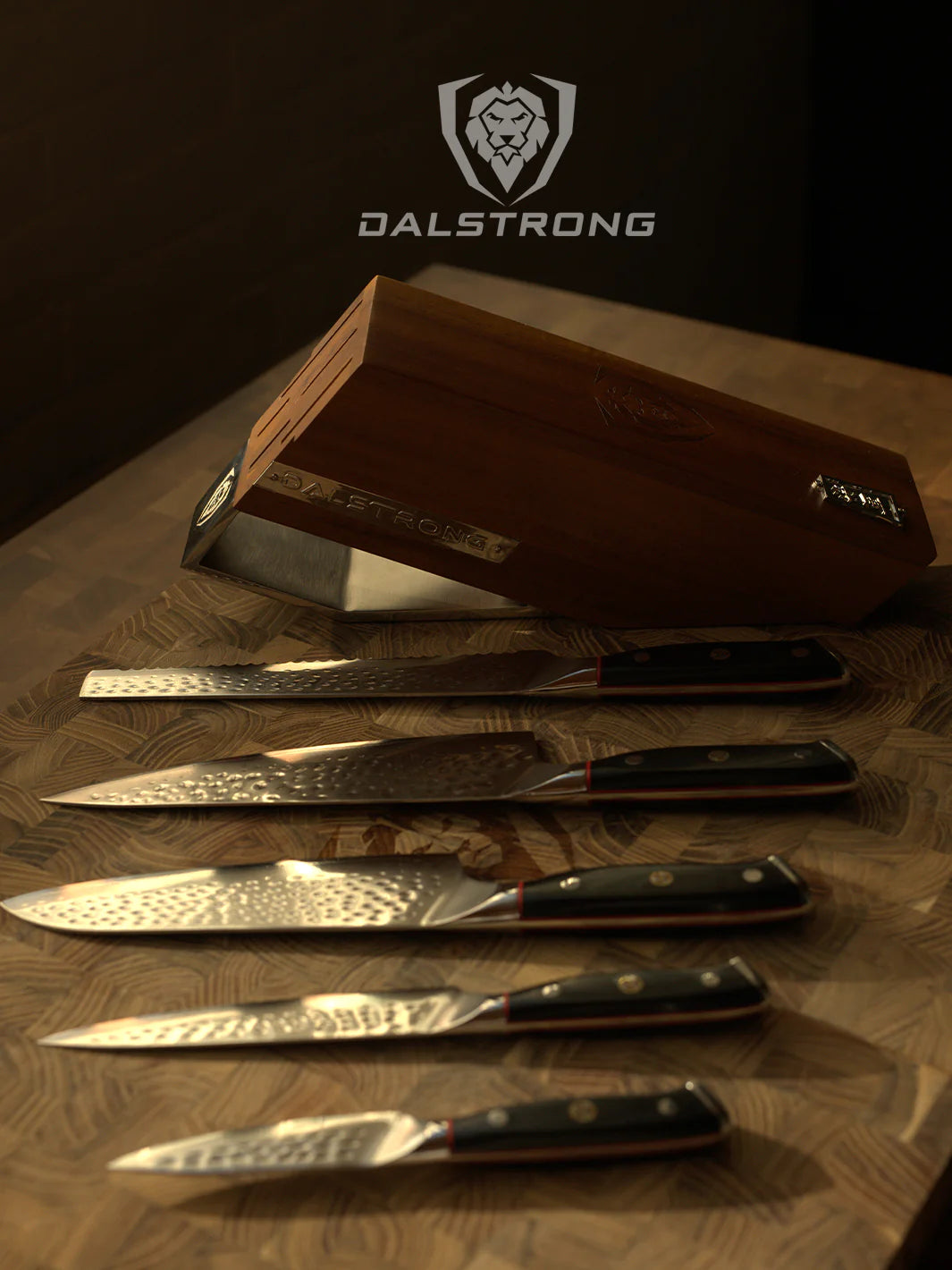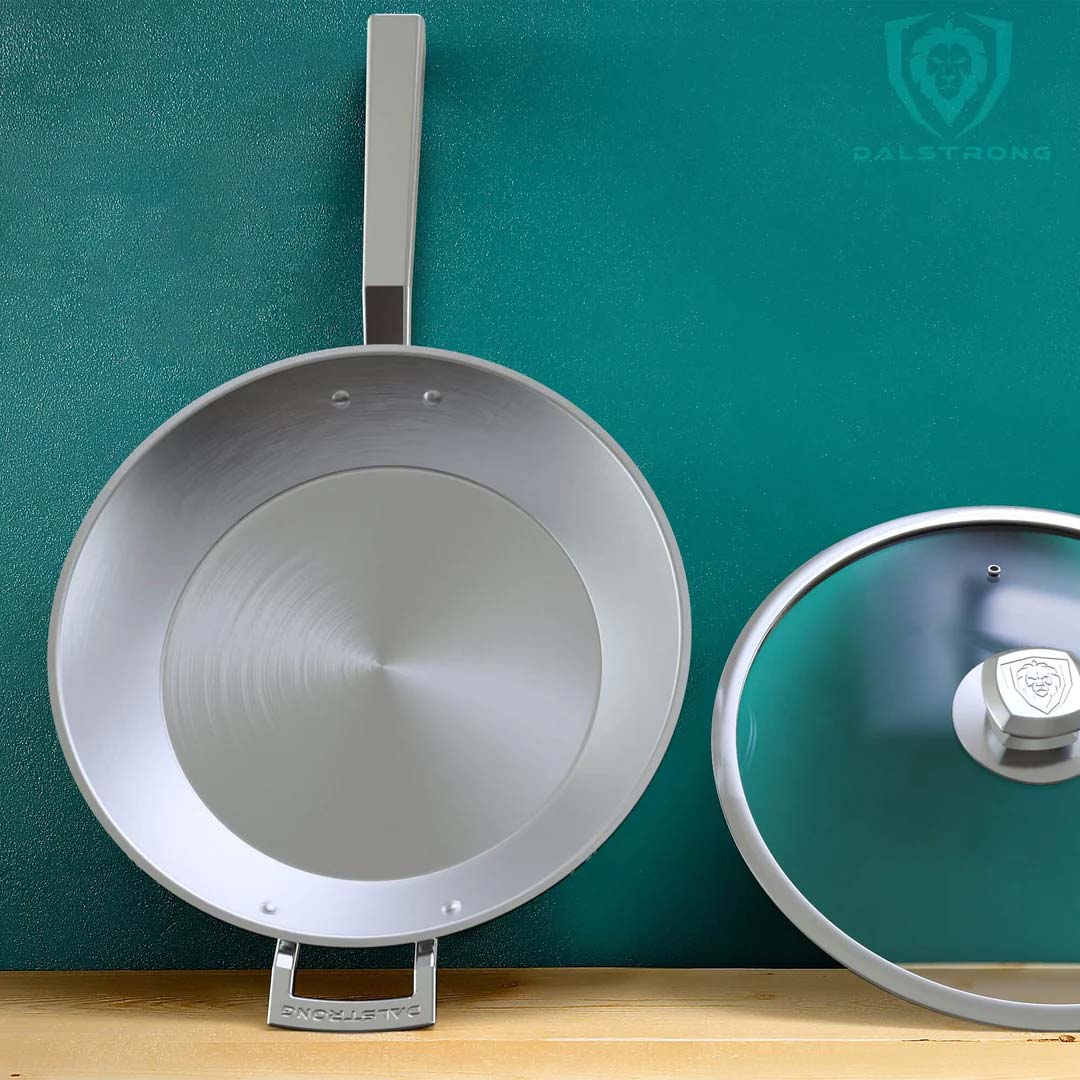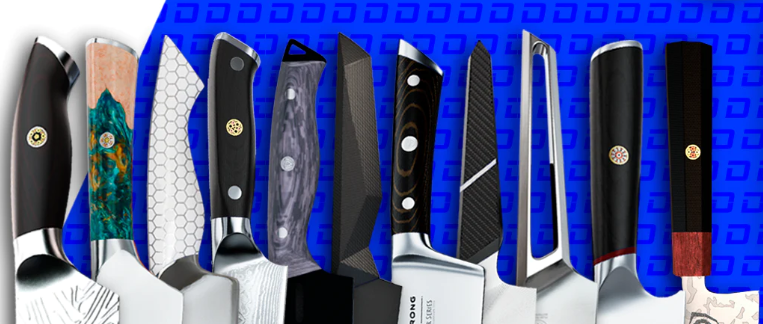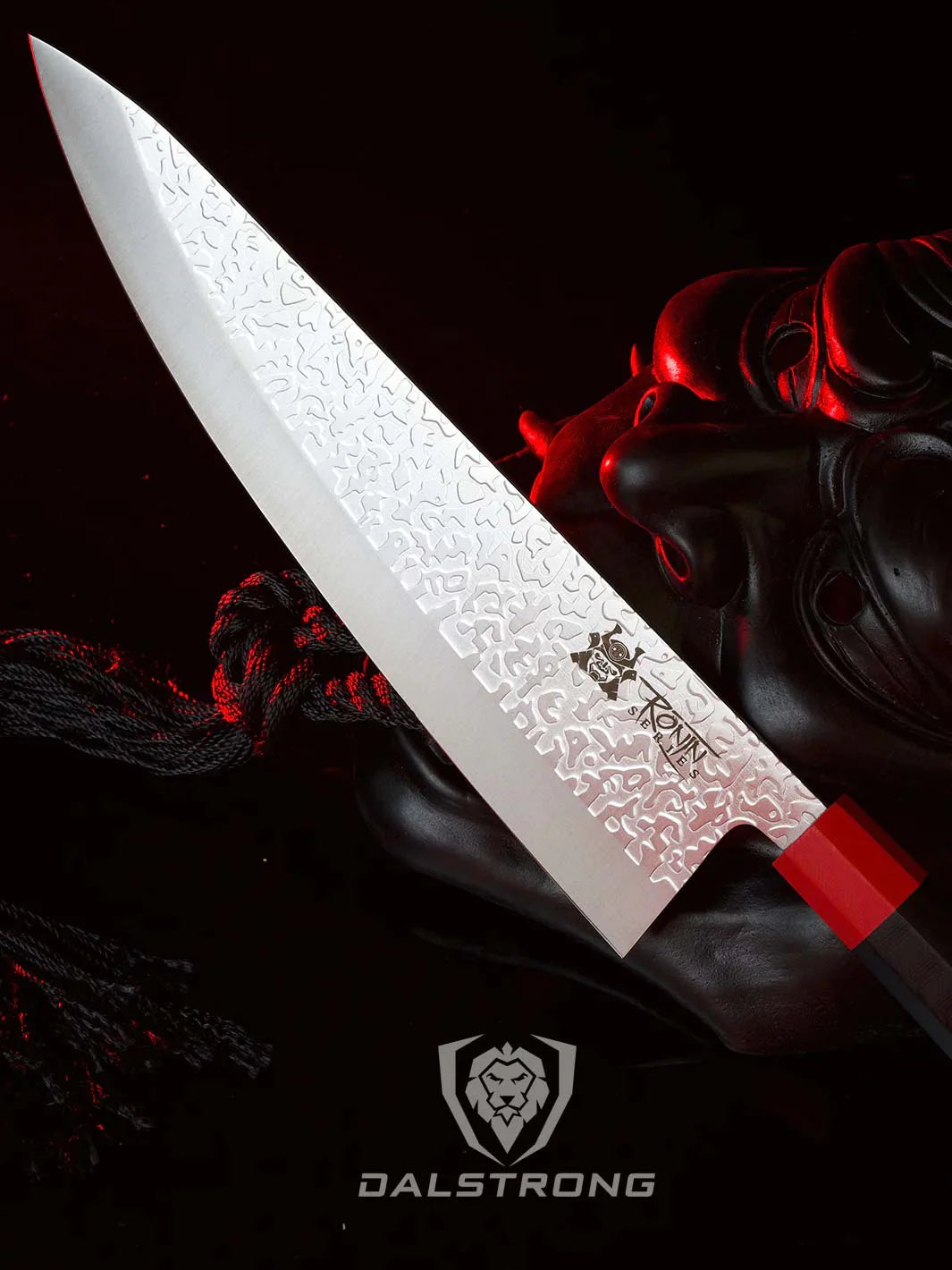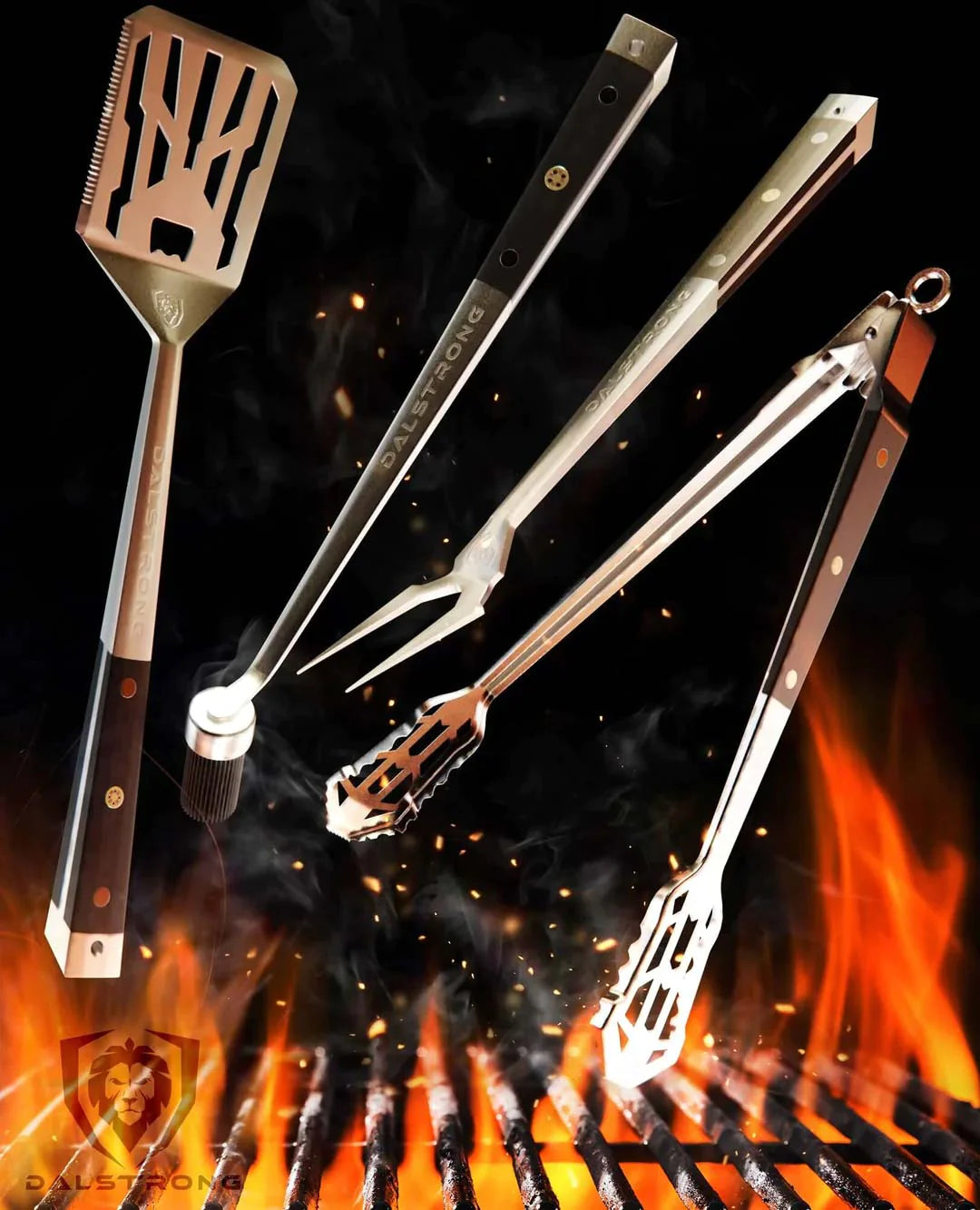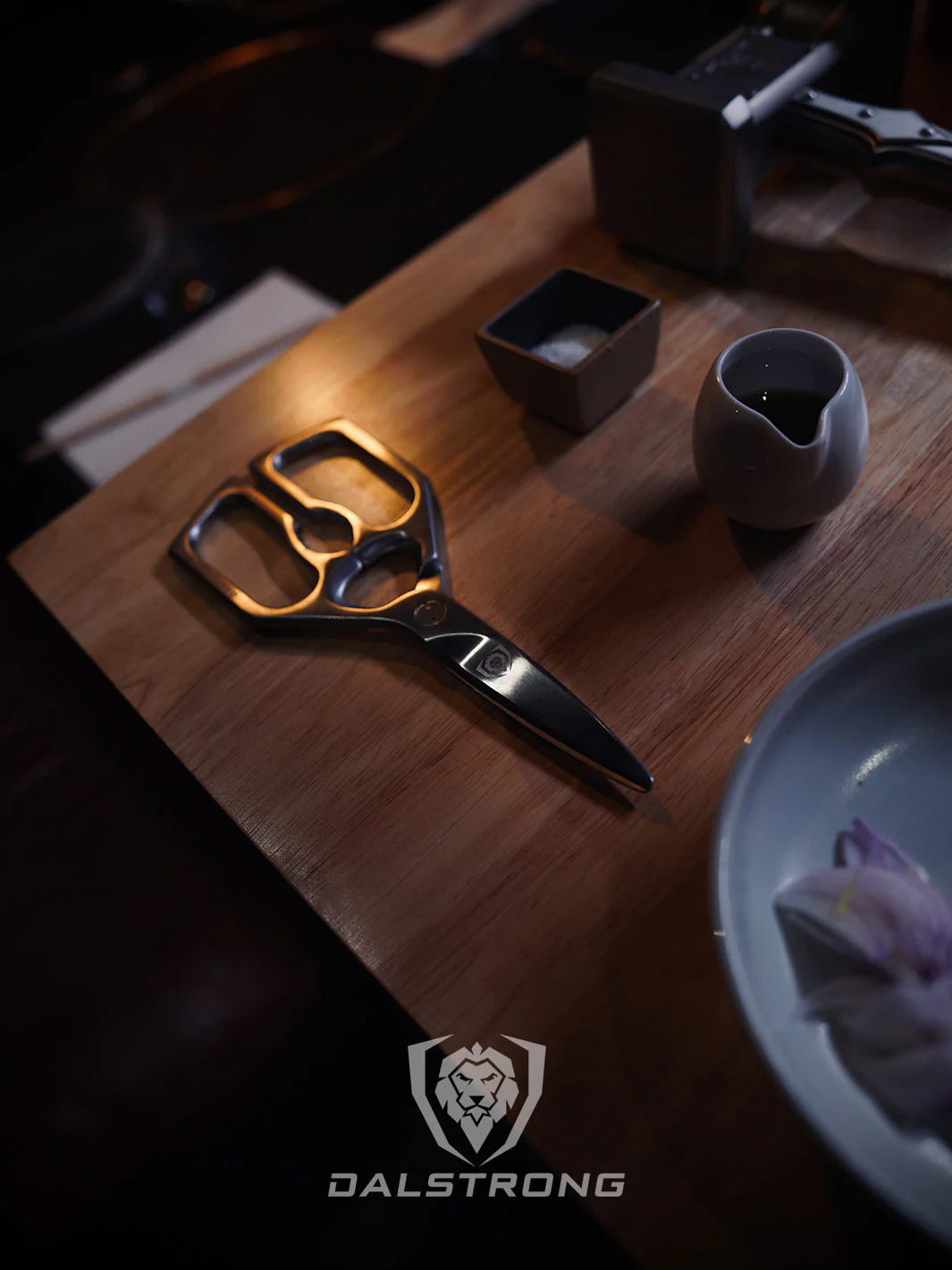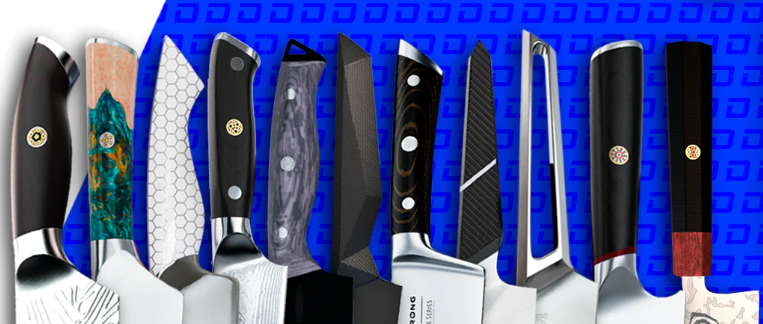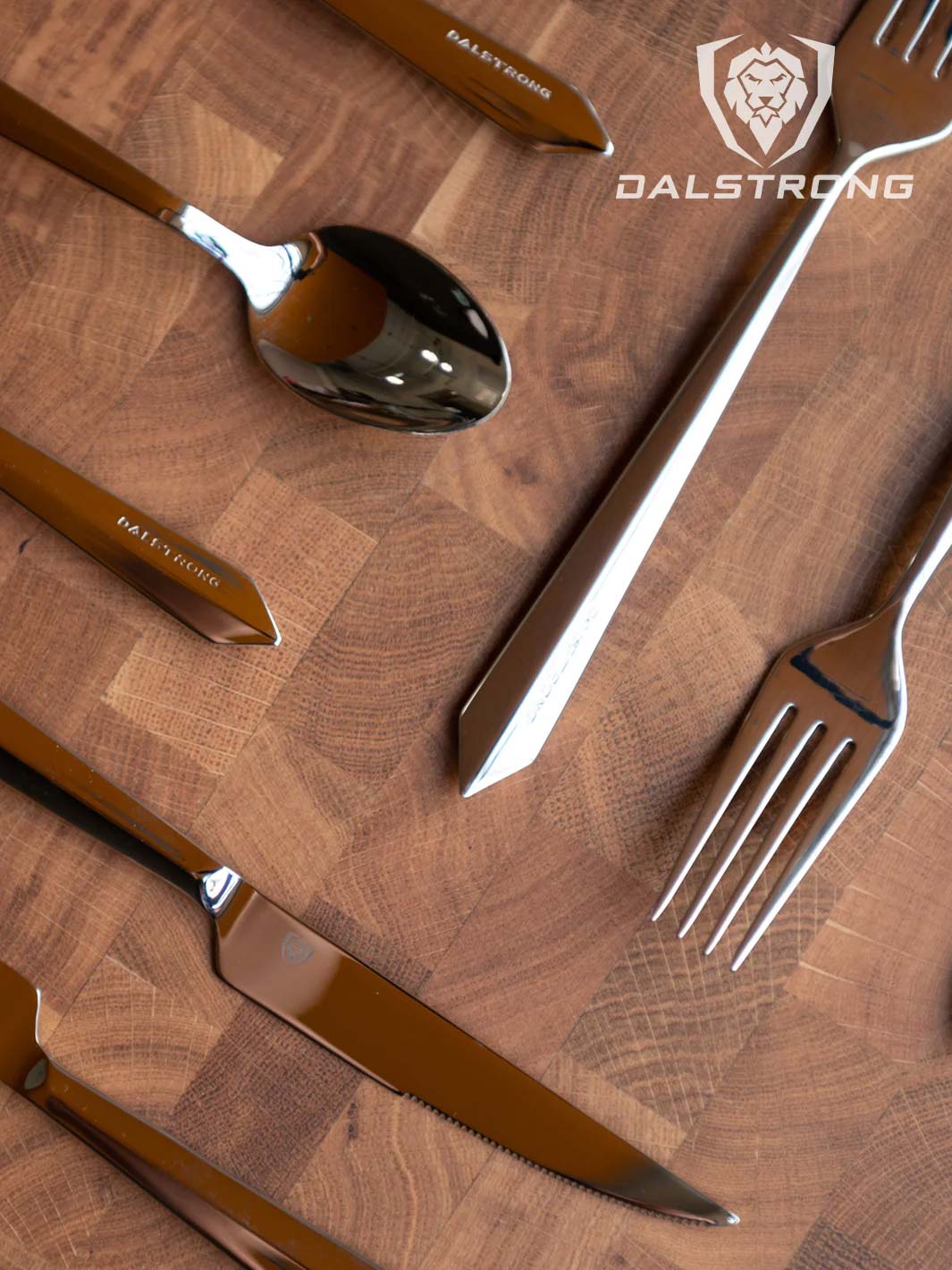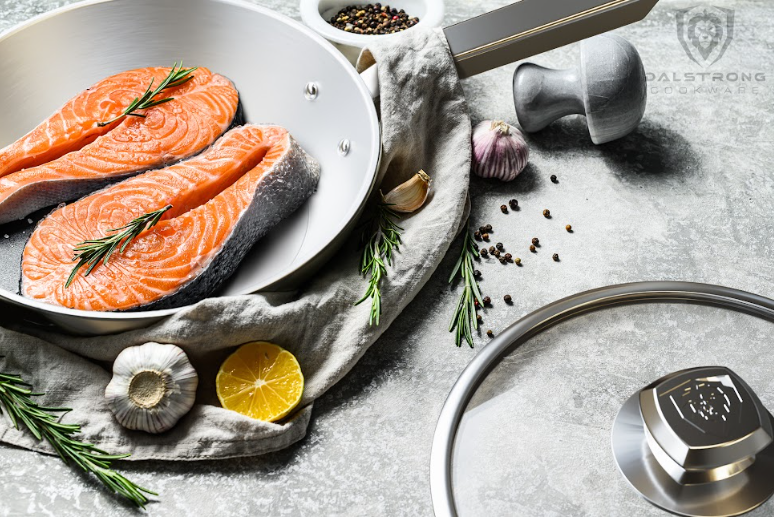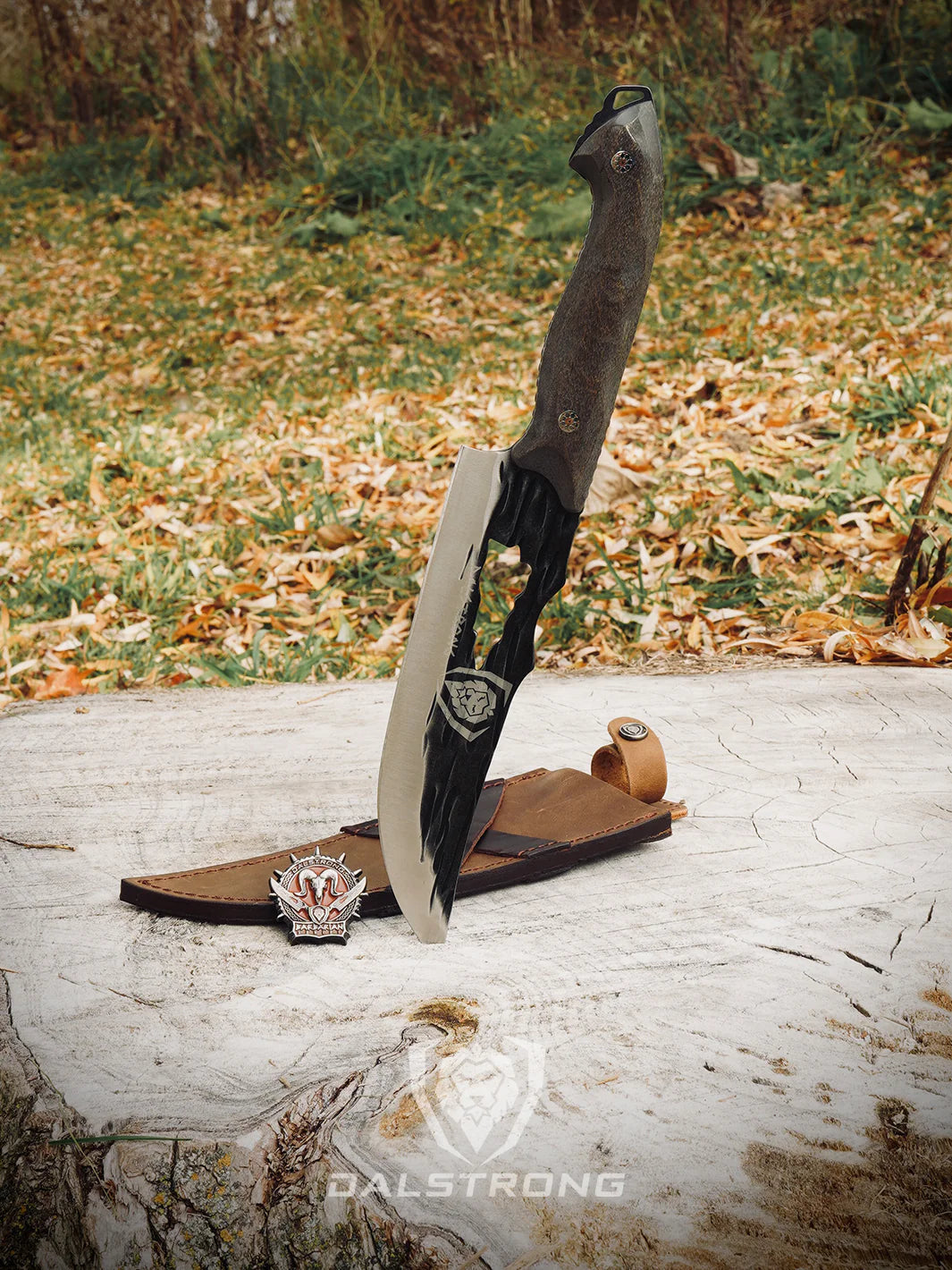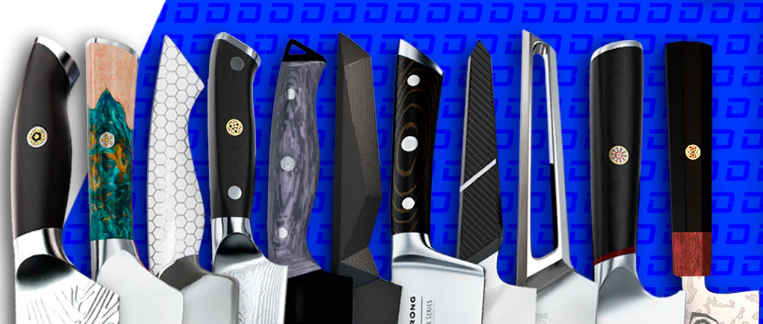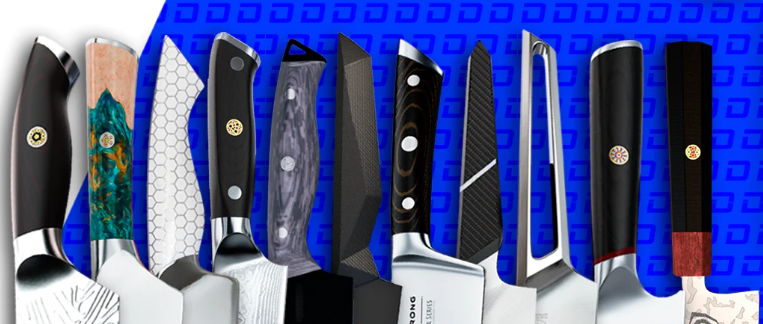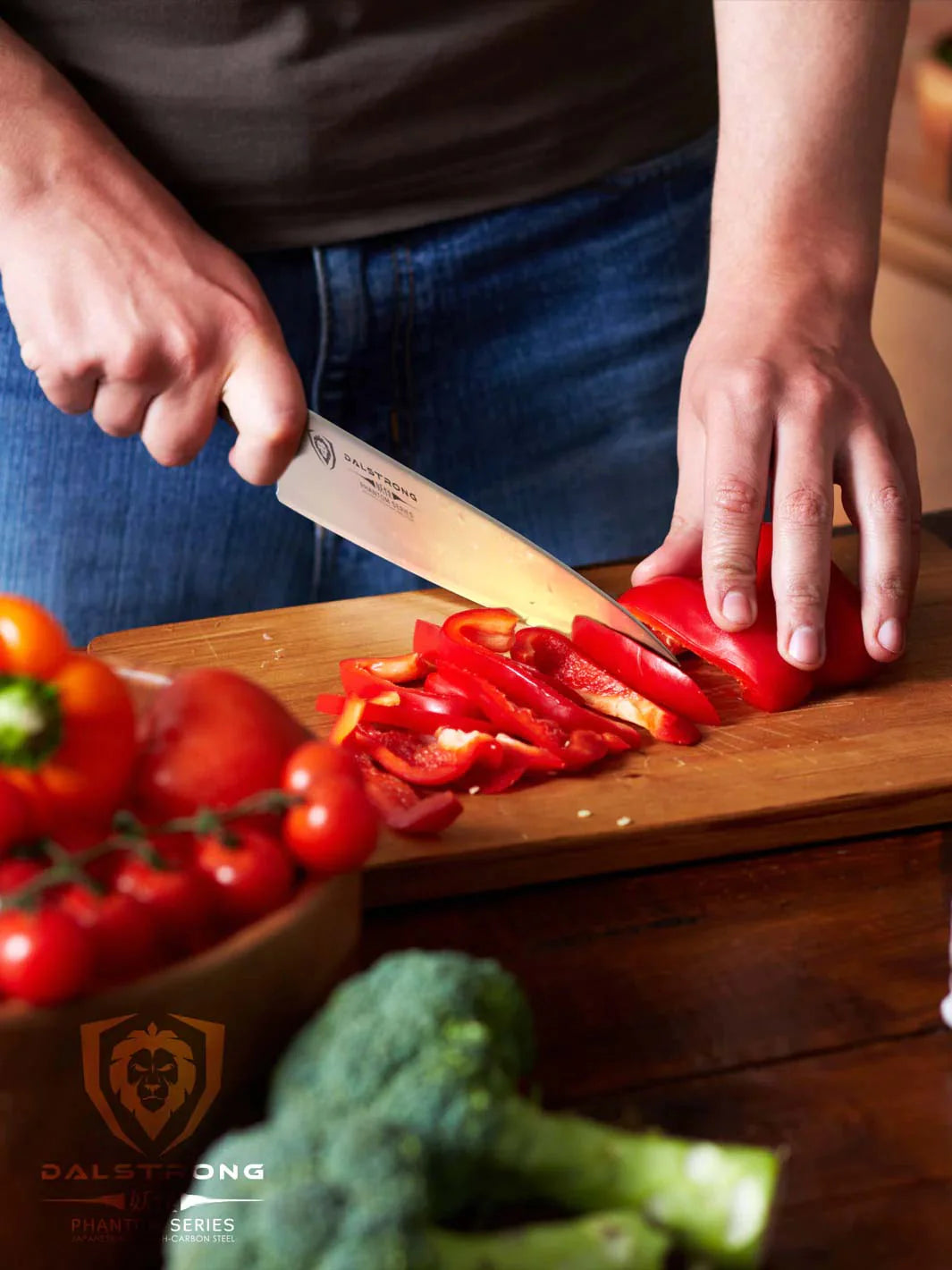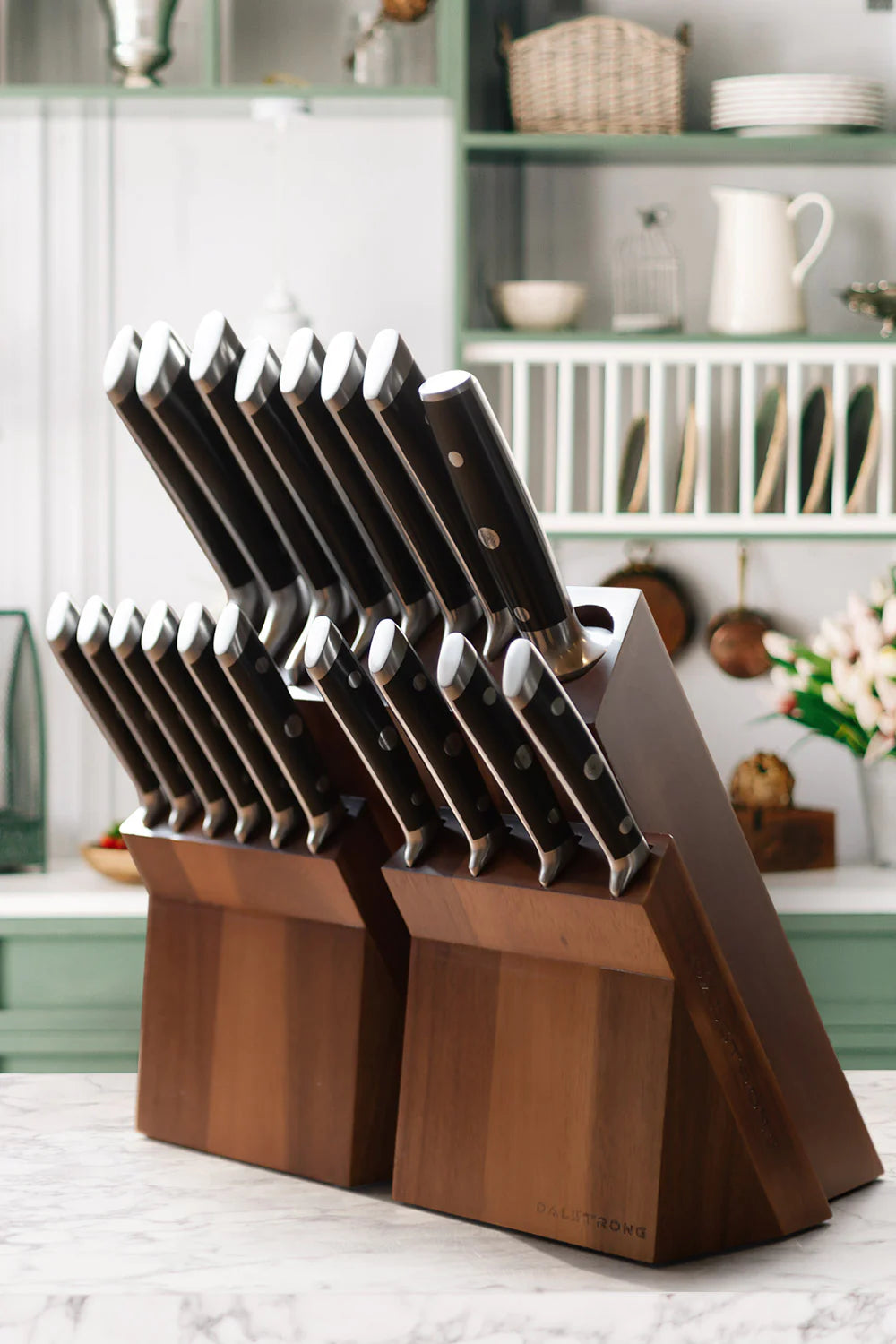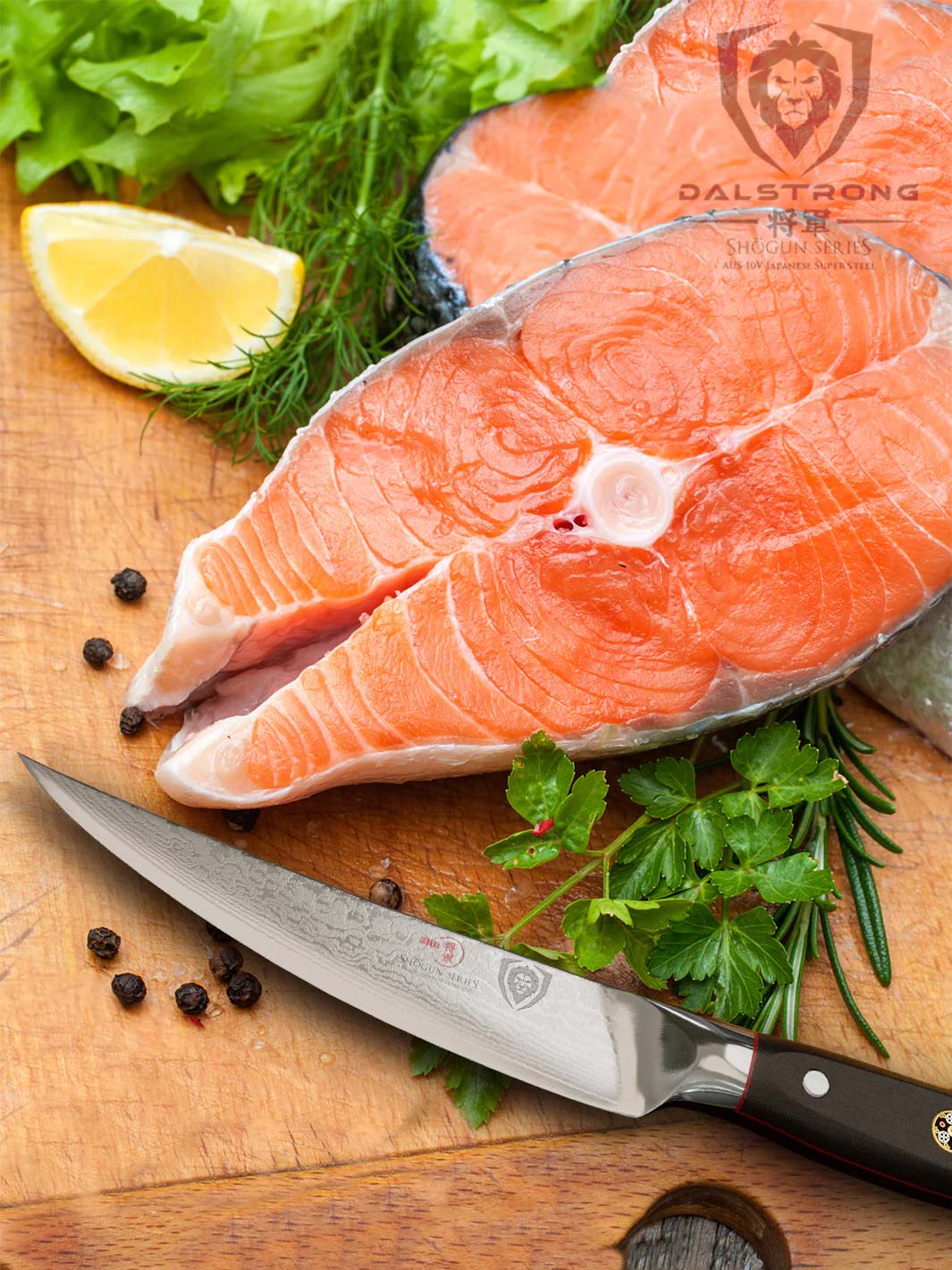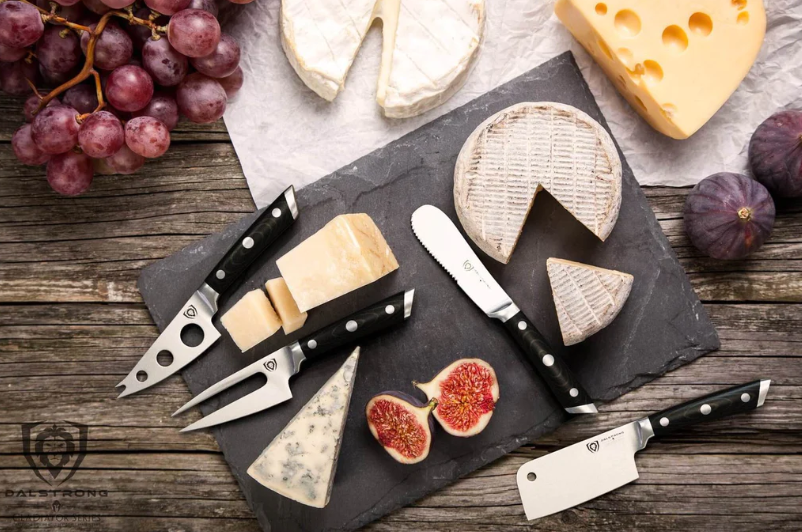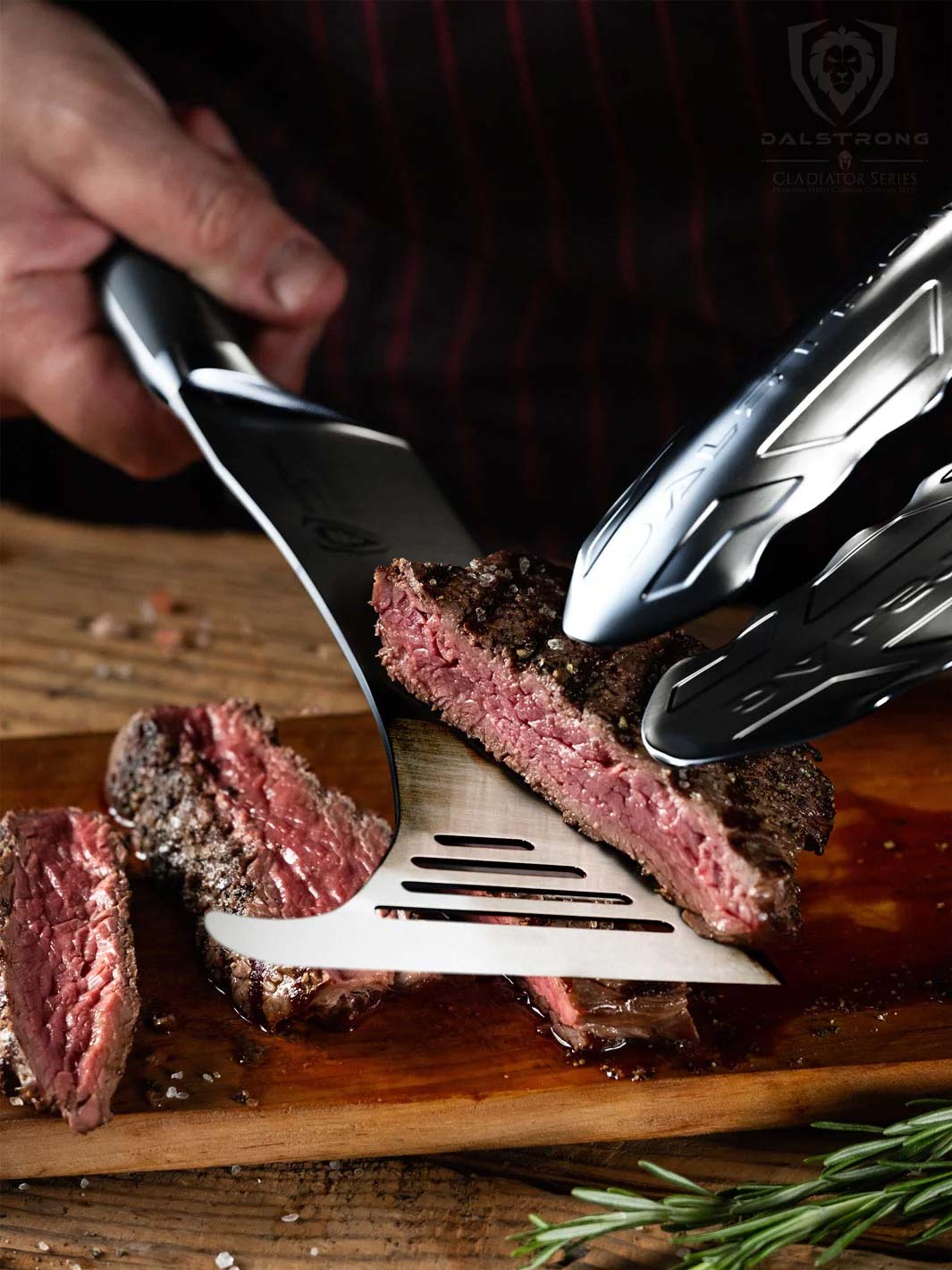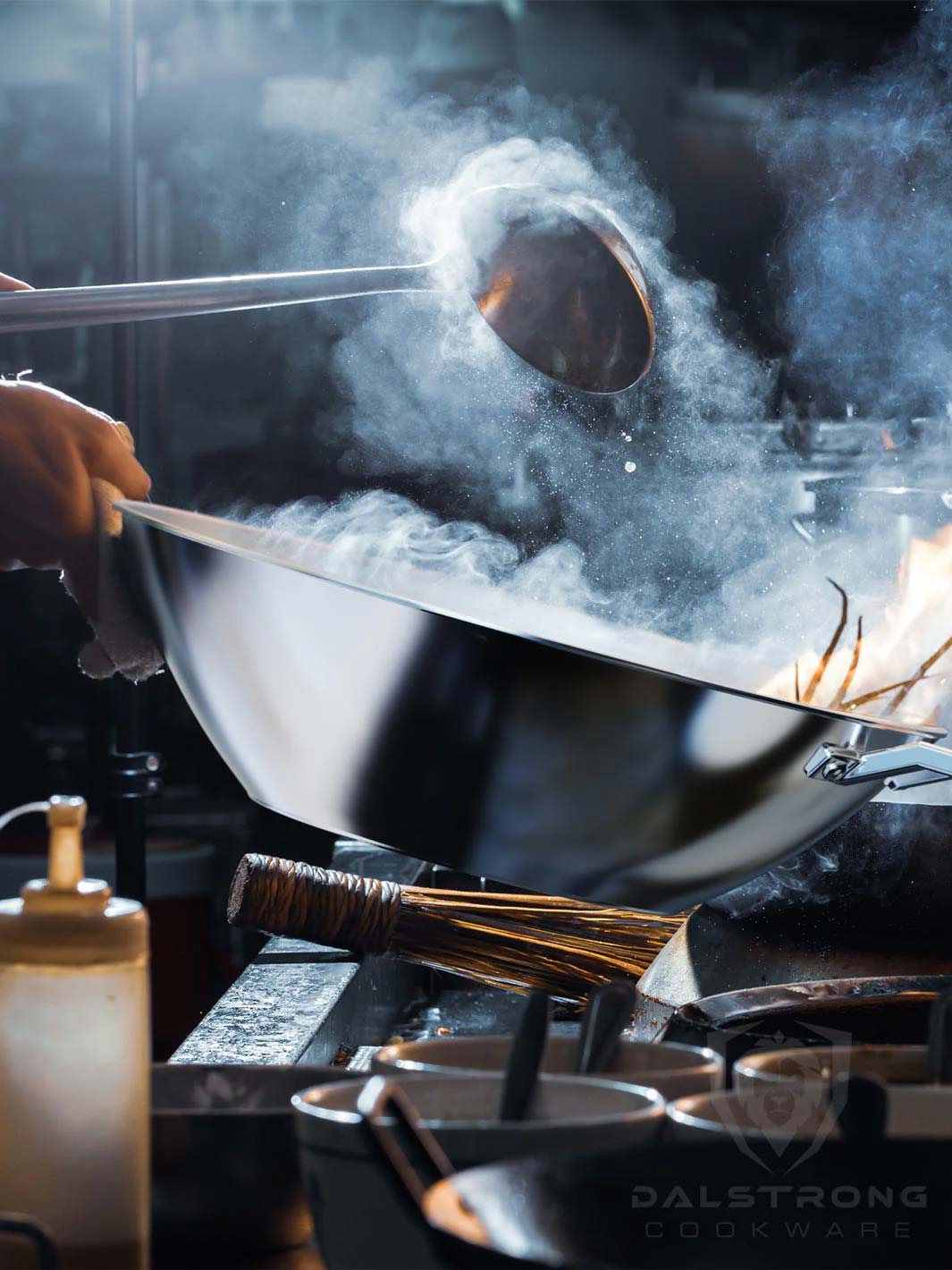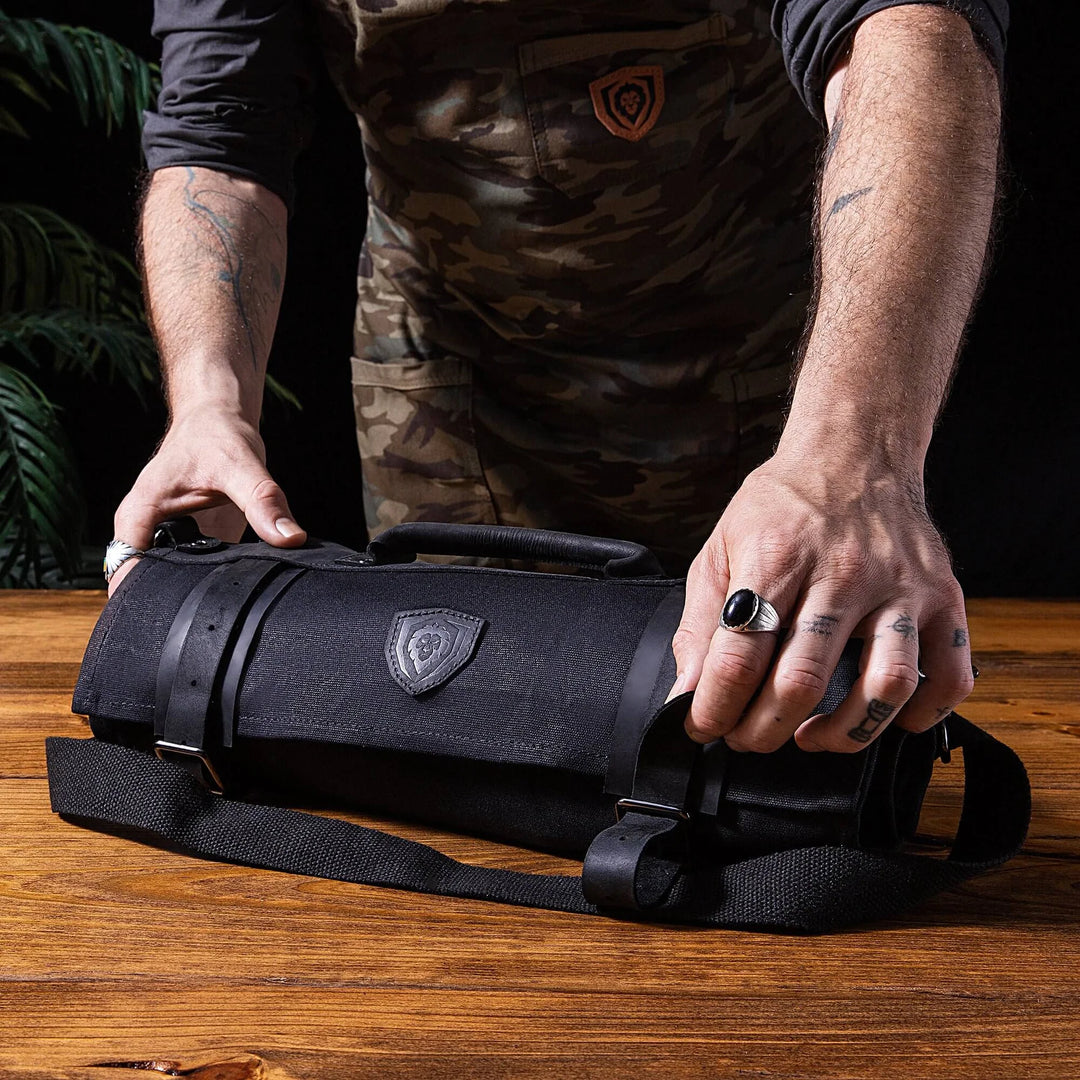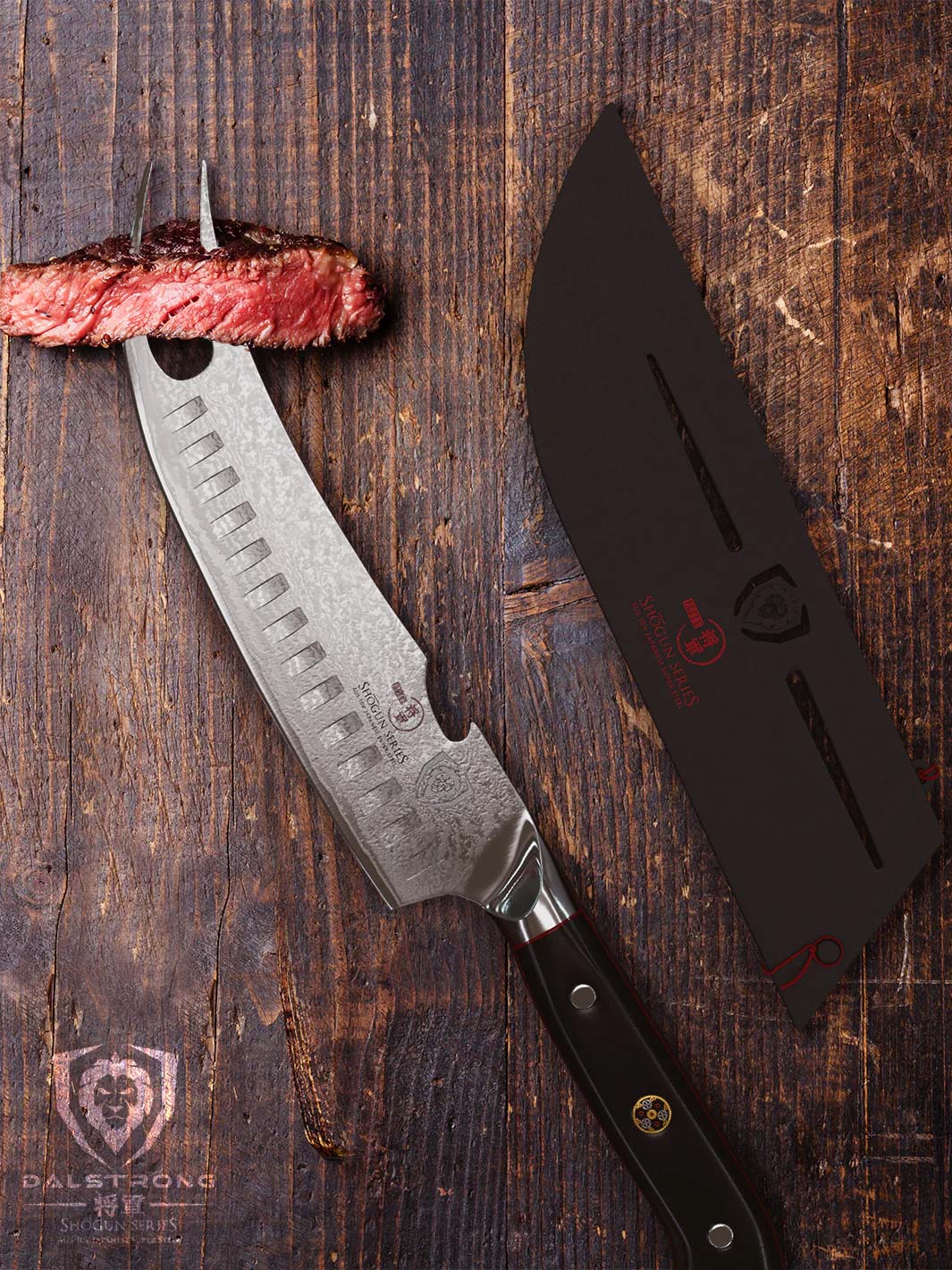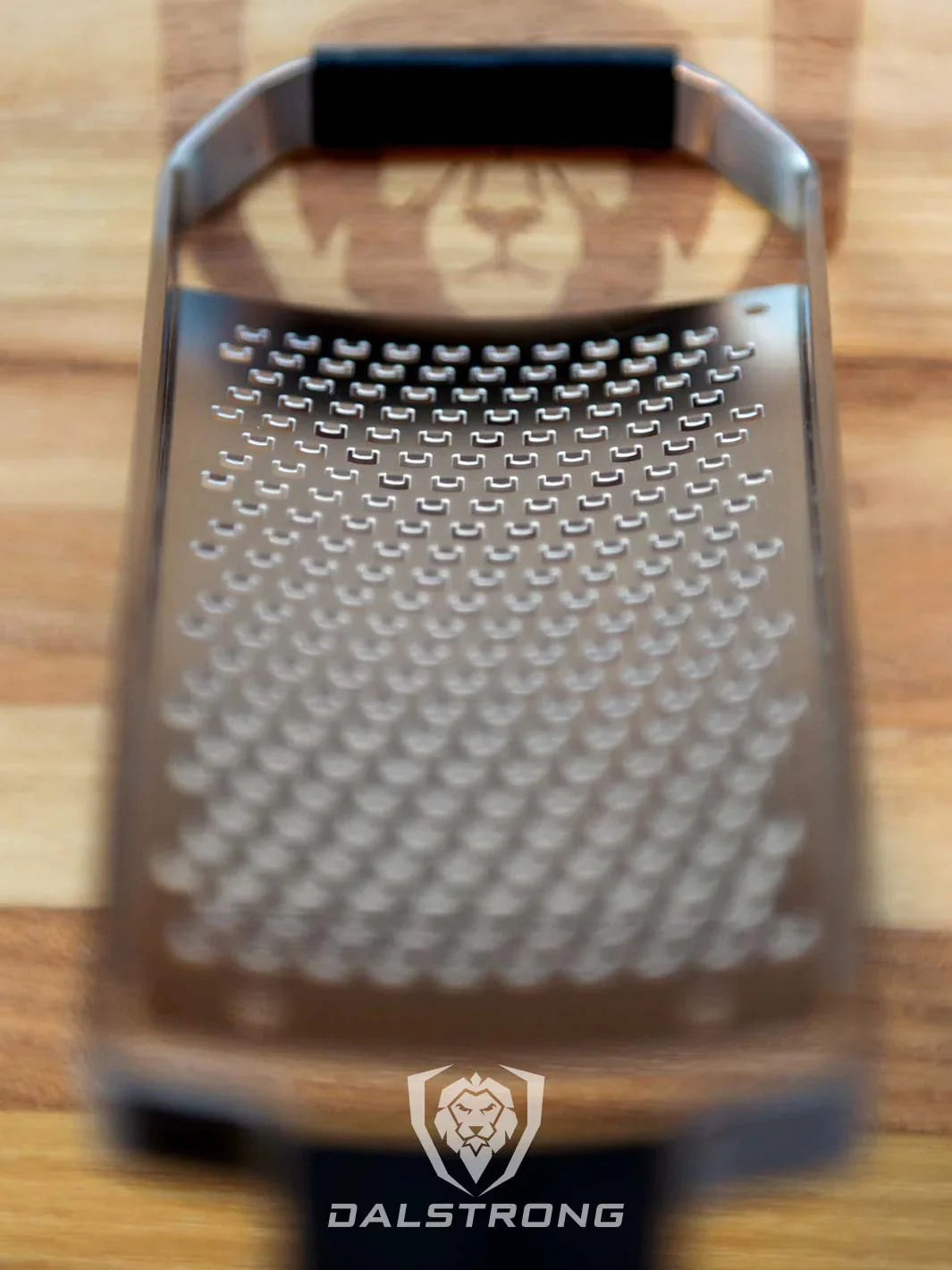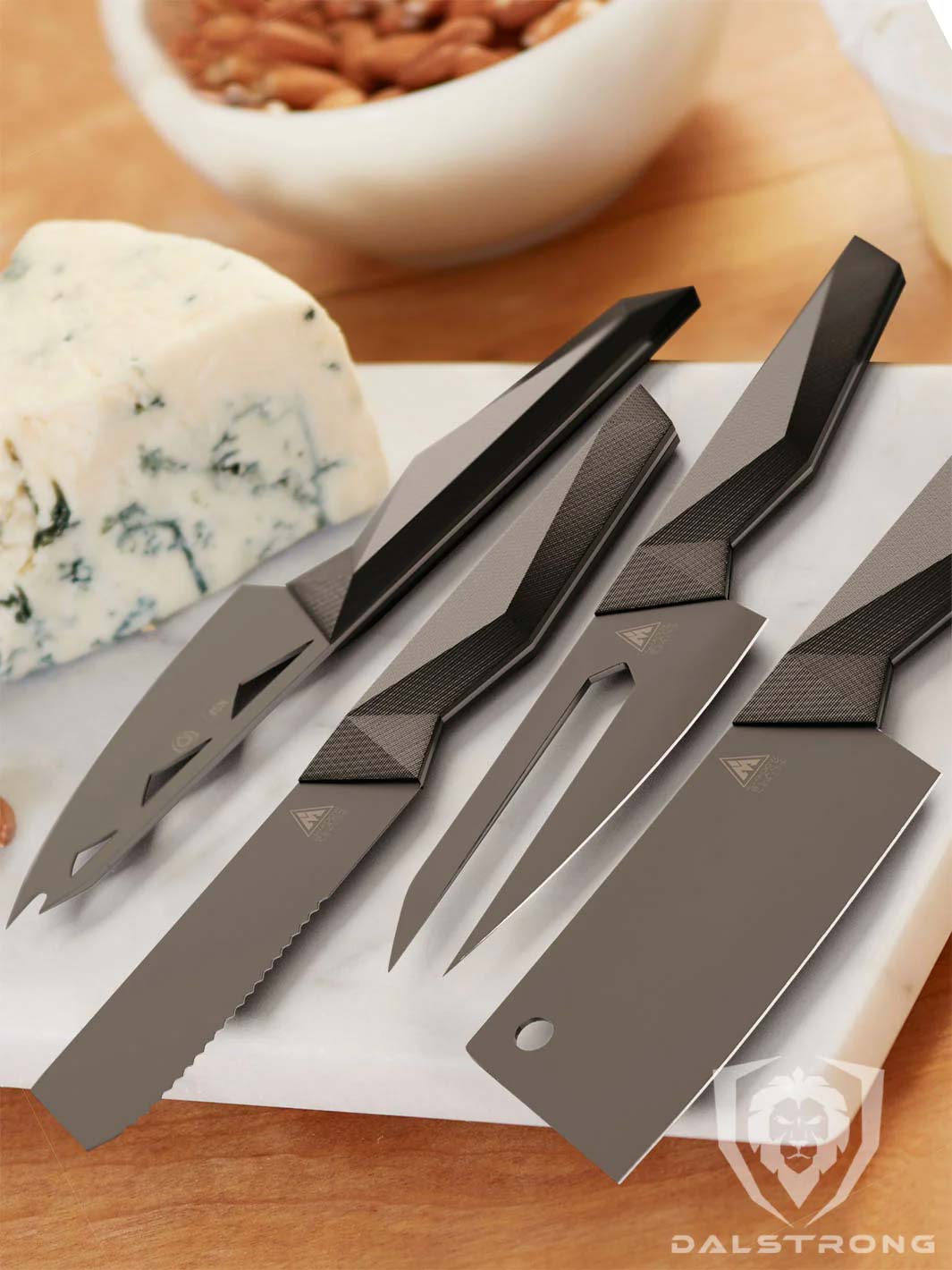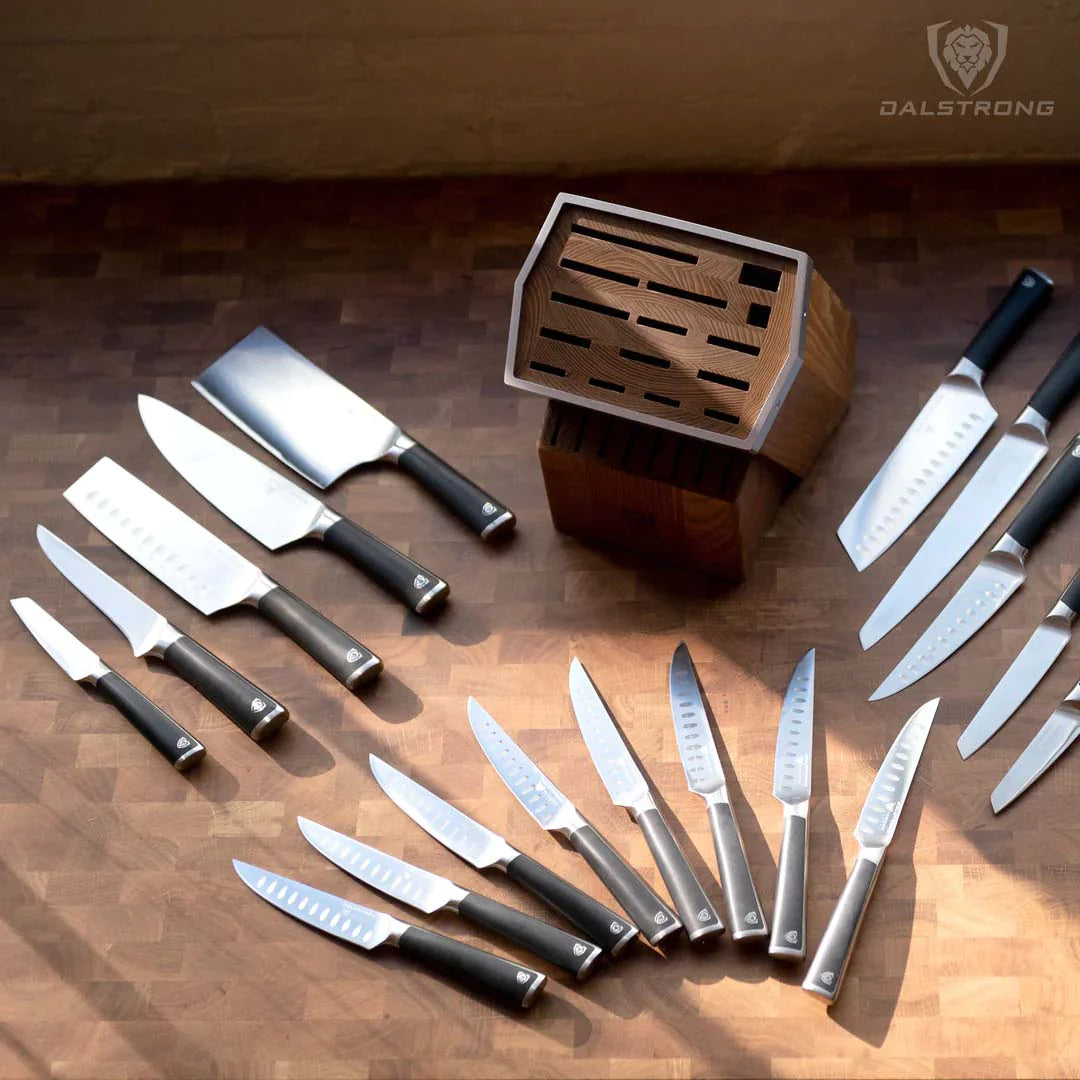Here's the Best Way To Prevent Dull Knives
Honing Steel 8" | Centurion Series | Dalstrong
Quick Overview: Best Way To Prevent Dull Knives
- Start with the right tools. Investing in high-quality kitchen knives sets the foundation for maintaining sharp edges.
- Opt for soft cutting boards, such as wood or plastic, to minimize the impact on knife blades.
- Store your knives in a designated space, such as magnetic knife holders or knife blocks.
- Incorporate regular honing into your routine using honing rods.
- Handwash your knives instead of using a dishwasher.
- Practice safe cutting techniques to avoid unnecessary stress on the blade.
- Consider using sharpening tools like sharpening steel or electric knife sharpeners to maintain the blade's sharpness.
- Inspect your knives regularly for any signs of damage or wear.
- If you have a set of kitchen knives, rotate their usage.
- Every now and then, consider professional sharpening services to give your knives a thorough sharpening. Dalstrong offers the best knife sharpening service and you can read about it below.
1. What Makes Knives Dull?
 #1000 / #6000 Grit Combo with Oak Storage Box | Portable Whetstone Kit | Dalstrong
#1000 / #6000 Grit Combo with Oak Storage Box | Portable Whetstone Kit | Dalstrong
Maintaining the sharpness of your kitchen knives is crucial for efficient and safe cooking. Understanding the factors that contribute to knife dullness is key to implementing preventive measures and preserving the longevity of your blades.
Knives can become dull due to various reasons, and being aware of these factors is essential for proper knife care. Here's an exploration of the elements that lead to dull knives:
Frequent Use Without Honing
One common reason for knife dullness is the lack of regular honing. Honing, done with honing rods, helps realign the blade, ensuring it stays sharp. Without this practice, the edge gradually folds over, resulting in a dull cutting surface.
Inadequate Cutting Surfaces
The cutting surface plays a significant role in maintaining knife sharpness. Using hard surfaces like glass or stone can accelerate blade wear. Opt for softer cutting boards, such as wood or plastic, to minimize the impact on the knife edge.
Improper Storage
How you store your knives matters. Storing knives in a cluttered drawer or allowing them to come into contact with other utensils can cause nicks and dull the blade. Use designated storage solutions like magnetic knife holders or knife blocks.
Read about on how to properly to store your knives the right way, here.
Dishwasher Usage
Dishwashers, with their harsh detergents and intense water pressure, can be detrimental to knife blades. Handwashing is preferable to maintain the sharpness and overall condition of your knives.
Lack of Safe Cutting Techniques
Applying excessive force or using improper cutting techniques can lead to blade damage and dullness. A controlled rocking motion when chopping and slicing helps prevent unnecessary stress on the knife edge.
Delayed Maintenance
Regular inspections are vital to catch any signs of damage or wear early on. Ignoring issues or delaying maintenance can result in more severe damage and quicker dulling.
2. The Best Way To Prevent Dull Knives
Maintaining the sharpness of your kitchen knives is paramount for a smooth and efficient cooking experience. Dull knives not only hinder your culinary prowess but also pose safety risks. To ensure your knives stay sharp and ready for any slicing or dicing task, it's essential to adopt a proactive approach to knife care.
Invest in Quality Kitchen Knives
Begin with the foundation – quality kitchen knives. Investing in a reputable brand and high-quality materials sets the stage for durable and sharp blades. Look for chef's knives and knife sets that are designed for longevity.
Choose the Right Cutting Boards
Opt for soft cutting boards made of wood or plastic. These materials are gentle on knife blades, minimizing the impact and reducing the rate of dulling. Using the appropriate cutting surface is a simple yet effective step in knife care.
Utilize Proper Knife Storage
How you store your knives plays a significant role in their longevity. Magnetic knife holders, knife blocks, or in-drawer knife storage are excellent choices. Ensure the knives are stored individually to prevent them from coming into contact with other utensils, which could lead to nicks and dullness.
Regular Honing with Honing Rods
Incorporate regular honing into your knife care routine. Honing rods are valuable tools for maintaining the sharpness of your blades by realigning the edges. This quick and simple step should be performed regularly, especially if you use your knives frequently.
Handwash Your Knives
Avoid the dishwasher when cleaning your knives. Handwashing with a mild detergent and lukewarm water is gentler on the blades. The harsh detergents and high water pressure in dishwashers can contribute to blade dullness over time.
Practice Safe Cutting Techniques
Implementing safe cutting techniques not only ensures your safety but also preserves the sharpness of your knives. Use a controlled rocking motion when chopping and slicing, and avoid applying excessive force. Proper cutting techniques reduce stress on the blade, preventing premature dulling.
Consider Knife Sharpeners
Invest in quality knife sharpeners, such as sharpening steel, electric knife sharpeners, or better yet, whetstones. These tools are designed to restore and maintain the sharpness of your knives. Follow the manufacturer's instructions for optimal results.
Rotate Knife Usage
If you have a set of kitchen knives, rotate their usage. This ensures even wear across all knives, preventing excessive strain on a single blade. By distributing the workload, you extend the overall lifespan of your knife set.
Regularly Check Knife Blades
Perform routine inspections of your knives. Look for any signs of damage, wear, or nicks. Addressing issues promptly can prevent further damage and help maintain the sharpness of your blades.
Consider Professional Sharpening Services
Periodically, engage professional sharpening services to give your knives a thorough sharpening. This is especially beneficial for knives that see frequent use. Professional sharpening ensures a precise and effective restoration of your blades.
3. Knife Blade Materials Resistant To Rust And Corrosion
Stainless Steel Blades
Stainless steel is a widely popular choice for kitchen knife blades due to its excellent resistance to rust and corrosion. The chromium content in stainless steel forms a protective layer that shields the blade from the corrosive effects of water and acidic foods. Chefs knives, kitchen knives, and knife sets often feature stainless steel blades, making them a preferred choice for many home cooks and professional chefs.
High Carbon Stainless Steel
High carbon stainless steel combines the advantages of both high carbon steel and stainless steel. It retains a sharp edge like high carbon steel while benefiting from the corrosion resistance of stainless steel. This material is often used in premium kitchen knives, ensuring durability and minimal maintenance.
Carbon Steel Blades with Protective Coating
While carbon steel itself is more susceptible to rust, some knives use a protective coating to enhance resistance. This coating acts as a barrier, preventing direct contact between the blade and corrosive elements. This method allows for the exceptional sharpness of carbon steel while minimizing the risk of corrosion.
Ceramic Blades
Ceramic knives have gained popularity for their resistance to rust and corrosion. The blades are made of zirconium dioxide, a ceramic material known for its non-reactivity to acids and chemicals. However, ceramic knives require careful handling as they are more brittle than steel counterparts.
Titanium-Coated Blades
Titanium coatings on knife blades provide an additional layer of protection against rust and corrosion. The titanium layer enhances the blade's durability while also contributing to its non-stick properties, making it easier to clean and maintain.
Damascus Steel
Damascus steel, known for its distinctive layered patterns, is often used in premium knives. The combination of various high-quality steel alloys contributes to both sharpness and corrosion resistance. While Damascus steel knives can be an investment, their performance and aesthetics make them highly sought after. Dalstrong’s Damascus knives are a special treat!
Rust-Resistant Knife Sets
When looking for a comprehensive solution, consider knife sets specifically advertised as rust-resistant. These sets typically feature blades made from materials like high carbon stainless steel or proprietary alloys designed to withstand the challenges of a kitchen environment.
4. Dalstrong’s Knife Sharpening Service
 Dalstrong Professional Knife Sharpening Service powered by Knife Aid
Dalstrong Professional Knife Sharpening Service powered by Knife Aid
High-Quality Knife Sharpening
Dalstrong's knife sharpening service prioritizes quality. They understand the significance of maintaining a sharp edge, and their experts use advanced techniques to ensure that each knife receives the attention it deserves. This commitment to high-quality sharpening is essential for chefs and home cooks alike who rely on precision in their kitchen tasks.
Expert Sharpeners
Dalstrong employs expert sharpeners who are well-versed in the intricacies of various blade materials and knife designs. Whether it's chefs knives, kitchen knives, or specialized blades like honing rods, Dalstrong's team of sharpening experts has the knowledge and skill to bring blades back to optimal sharpness.
Comprehensive Blade Care
The knife sharpening service at Dalstrong is not just about sharpening; it's about comprehensive blade care. They understand the importance of addressing any signs of damage or wear during the sharpening process. This attention to detail ensures that your knives not only regain their sharpness but also receive any necessary maintenance for longevity.
5. Recommended Dalstrong Knife Sharpeners
1. #1000 / #6000 Grit with Nagura Stone & Rust Eraser
Ideal for both German and Japanese knives, the set includes a Nagura flattening stone for quick touch-ups and a handcrafted Acacia wood base for stability and storage.
PROS:
- Dalstrong's Premium Whetstone Set provides a comprehensive solution with two high-quality gritstones, ensuring efficient sharpening for various knife types.
- The larger, thicker stones offer increased surface area, making it an excellent investment for maintaining the sharpness and peak performance of your knives.
- It comes with a Nagura Stone and Rust eraser for the ultimate knife sharpening and maintenance solution.
CONS:
- While the larger stones contribute to increased surface area, some users may find them less portable for on-the-go sharpening.
2. #3000 / #8000 Grit | Premium Whetstone Set | Dalstrong
This set, featuring #3000 and #8000 gritstones crafted from top-grade corundum, ensures that your cherished knives maintain a scalpel-like edge, promising peak performance and mirror-like finishes.
PROS:
- Perfect to use when sharpening either German or Japanese-style knives, and even scissors.
- Dalstrong's Premium Whetstone Set offers unparalleled value, providing two high-quality gritstones that cater to both sharpening and polishing needs, ensuring a long-lasting edge.
- Made from ultra-hard composite corundum stones for more effective blade sharpening and maintenance.
CONS:
- The optional Acacia Wood Base, though compatible, is sold separately, adding an extra cost for those who desire the complete set.
- If you’re not big on cooking or using knives, this set might not be of much use for your kitchen.
Easy to use and with endless applications, this premium rust eraser is a cost-effective solution to bring old tools and knives back to life.
PROS:
- With unrivaled performance, this eraser is versatile and easy to use on various bladed products, from knives to stainless steel tools, offering a cost-effective way to maintain and revitalize your tools.
- The Rust Eraser's ability to bring old tools and knives back to life by restoring a mirror shine adds significant value to its functionality.
- Can also be used to remove stains in whetstones.
CONS:
- Folks who aren’t big on kitchen knives or cooking may not find this rust eraser of much use.
6. Frequently Asked Questions
To prevent a knife from becoming dull, utilize honing rods as a primary tool for regular maintenance, ensuring the blade retains its sharp edge. Incorporate this practice into your routine, especially for chefs knives and kitchen knives, to prolong the life of the cutting edge.
How do you keep knives sharpened?Keep knives sharpened by investing in a high-quality whetstone set, such as the Dalstrong Premium Whetstone Set. This comprehensive kit, featuring #1000 and #6000 gritstones, caters to precision sharpening needs for both German and Japanese style knives. Regularly sharpening your knives with this set ensures optimal performance and a polished finish.
How do knives dull?Knives dull over time due to factors such as frequent use without honing, exposure to improper cutting surfaces, and inadequate storage. The use of honing rods helps realign the blade, while soft cutting boards and proper storage solutions like magnetic knife holders or knife blocks prevent nicks and maintain sharpness. Maintaining safe cutting techniques and avoiding the dishwasher will help preserve the longevity of your kitchen knives. Regular maintenance and the application of effective sharpening tools counteract these dulling factors, ensuring that your knives stay sharp and ready for various cutting tasks.






















































































































